Education
CEES Researchers discover how Indigenous knowledge systems such as Ethnomathematics enhance teaching and learning school mathematics
Published
8 months agoon
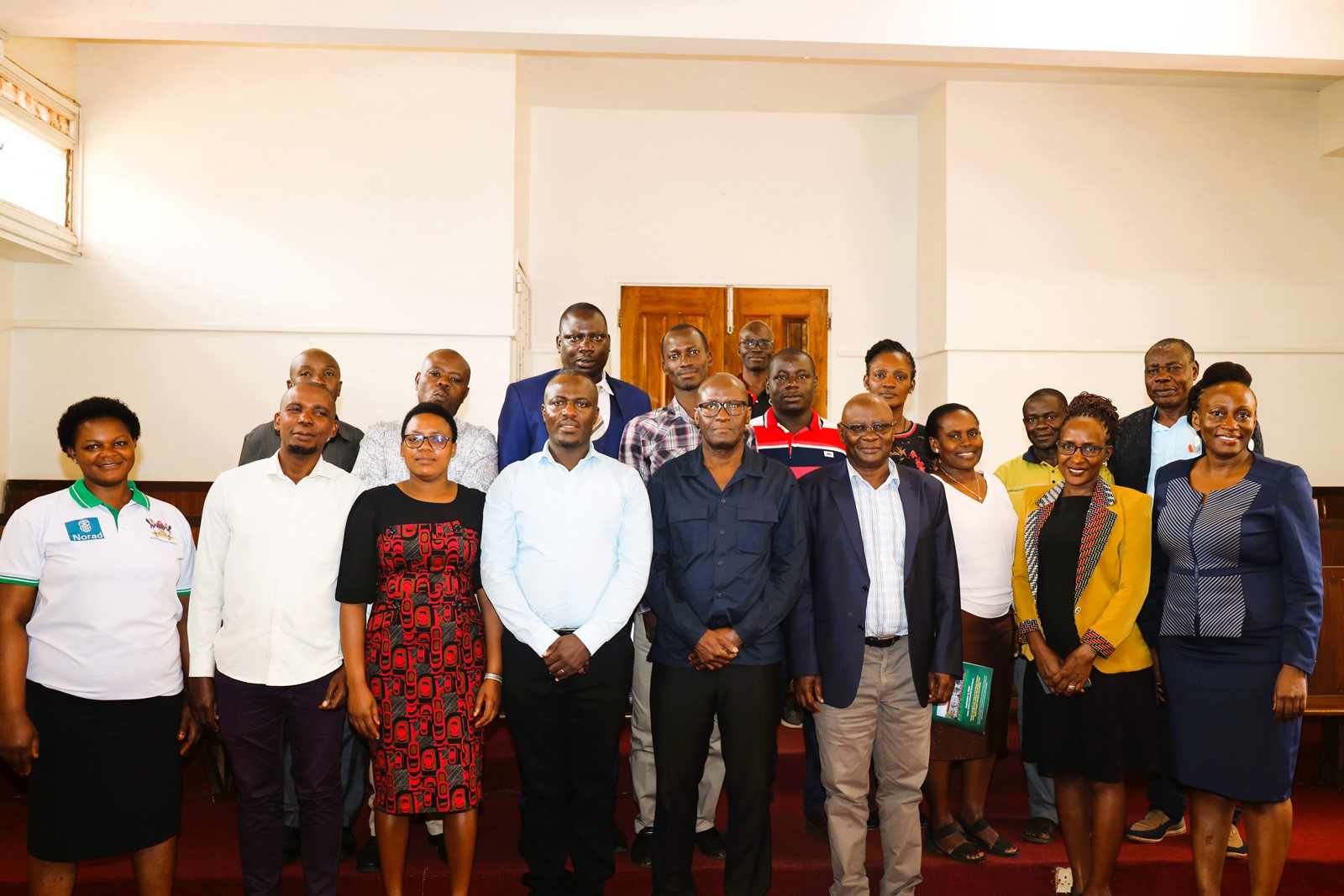
On September 3, 2024, the College of Education and External Studies at Makerere University hosted a significant research dissemination event, presenting pioneering findings on integrating Indigenous Knowledge Systems (IKS) such as ethnomathematics in teaching and learning school mathematics. The research, funded by the Carnegie Corporation of New York through the Makerere University Directorate of Research and Graduate Training, highlighted innovative approaches to making mathematics education more relevant and accessible to students in Uganda.
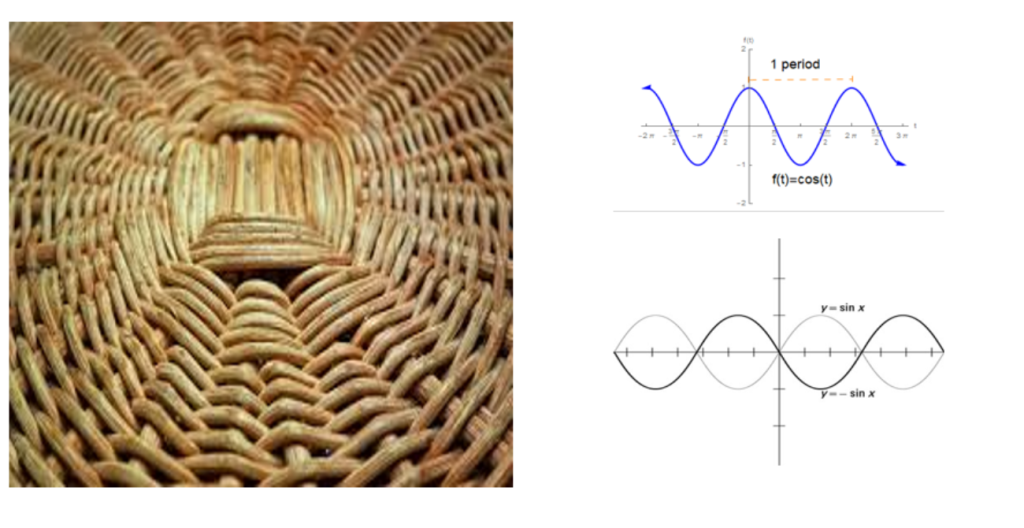
Ethnomathematics is an interdisciplinary field that explores the relationship between mathematics and culture. It investigates how different cultural groups understand, articulate, and apply mathematical concepts in ways that are often unique to their traditions and everyday practices. Educators and researchers can bridge the gap between formal, academic mathematics and the diverse mathematical practices found in various cultural contexts by exploring ethnomathematics. This approach can serve as a powerful medium for teaching and learning mathematics, offering several benefits such as cultural relevance in education.
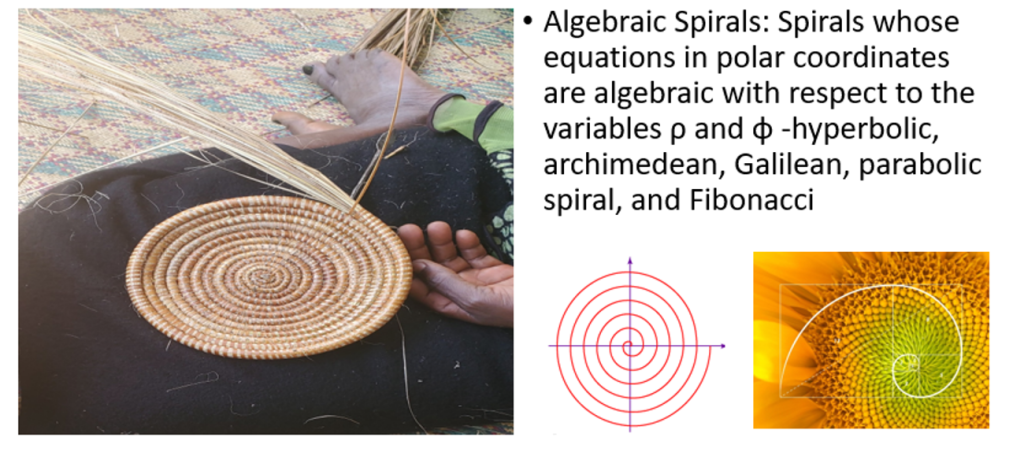
Ethnomathematics helps make mathematics more culturally relevant to students by connecting abstract mathematical concepts to their real-world experiences and cultural backgrounds. This relevance can increase student engagement, making mathematics feel more accessible and meaningful. For example, students from agricultural communities may better understand mathematical concepts when they are presented using traditional farming practices, such as crop rotation patterns or land measurement techniques.
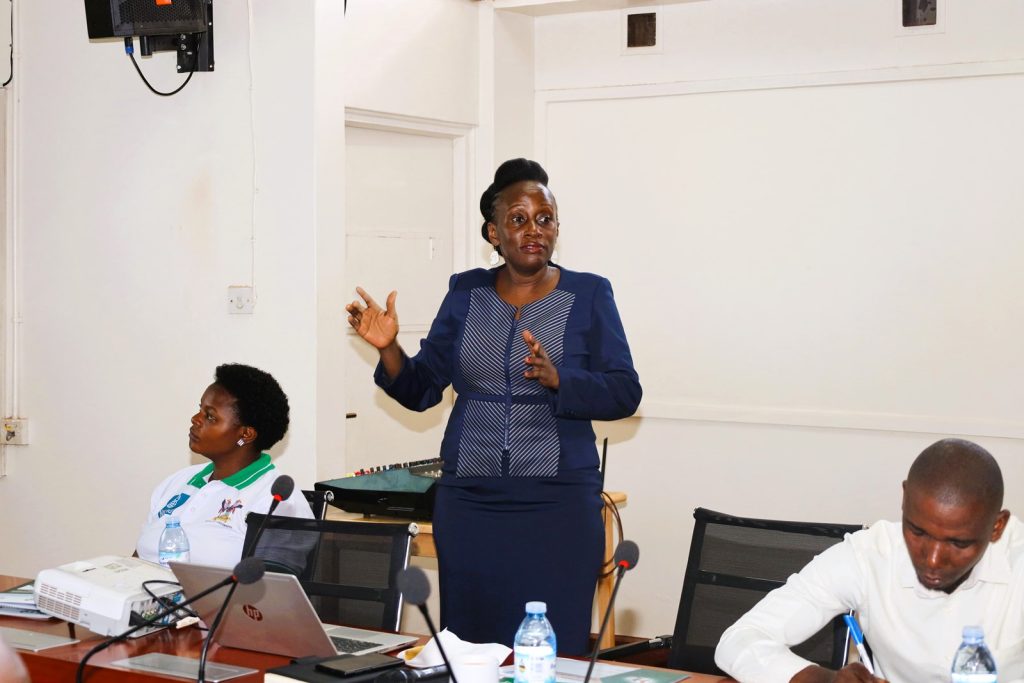
The research, led by Dr. Marjorie Sarah Kabuye Batiibwe from the Department of Science Technical and Vocational Education, focused on how traditional practices such as mat and basket weaving can be incorporated into the secondary school mathematics curriculum. This approach, termed ethnomathematics, seeks to connect abstract mathematical concepts to the cultural practices familiar to students, thus enhancing their understanding and engagement with the subject.
Key Findings
The research revealed that the mathematical processes embedded in traditional activities like weaving are rich in concepts that align with the school mathematics curriculum. For instance, mat weaving incorporates geometrical concepts such as symmetry, parallel lines, and shapes, while basket weaving introduces students to patterns, sequences, and measurement techniques. These cultural activities can be used as teaching tools to make learning more hands-on and relatable.
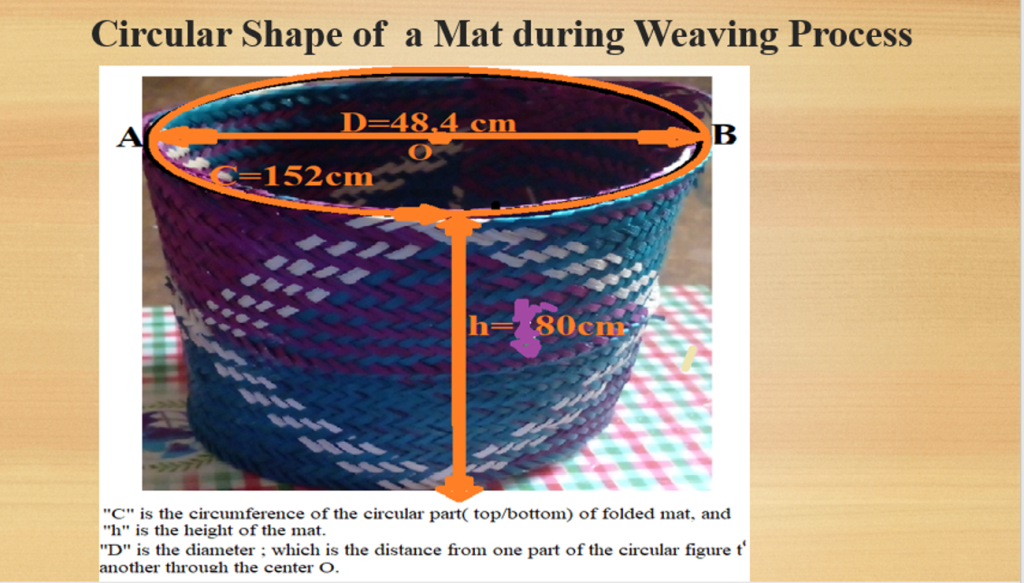
Impact on Education
Julius Anthony Musinguzi, a Master’s student undertaking this research said, the study also demonstrated that students taught using these culturally relevant methods showed improved conceptual understanding and a more positive attitude toward mathematics. “The use of IKS in teaching not only made mathematics more engaging but also helped bridge the gap between theoretical knowledge and practical application,” he said.
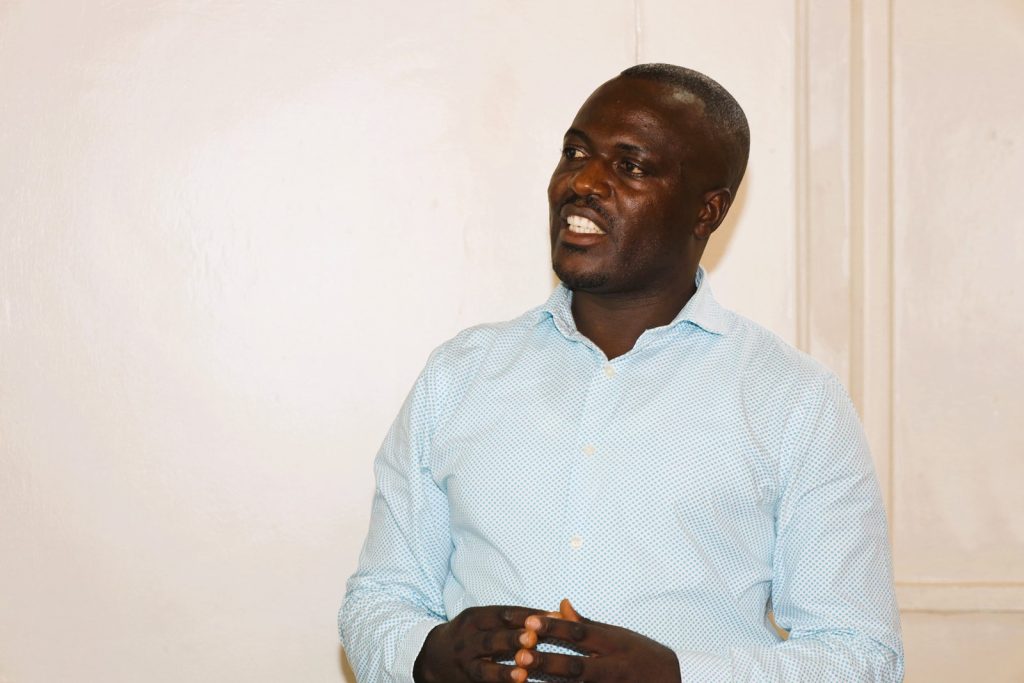
Dr. Batiibwe’s research further proposed the development of a curriculum module that incorporates these ethnomathematical practices into the training of pre-service mathematics teachers. This module would equip future educators with the tools and strategies needed to integrate IKS into their teaching practices effectively.
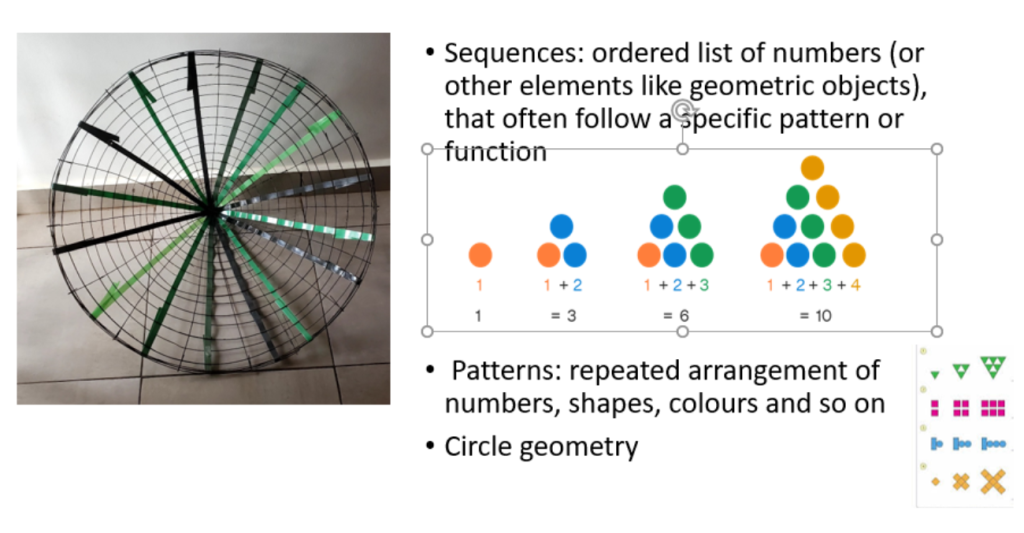
The event concluded with a call to action for education stakeholders in Uganda to consider the integration of ethnomathematics into the national curriculum. This would not just preserve and promote indigenous knowledge but also improve the quality of mathematics education by making it more inclusive and contextually relevant.
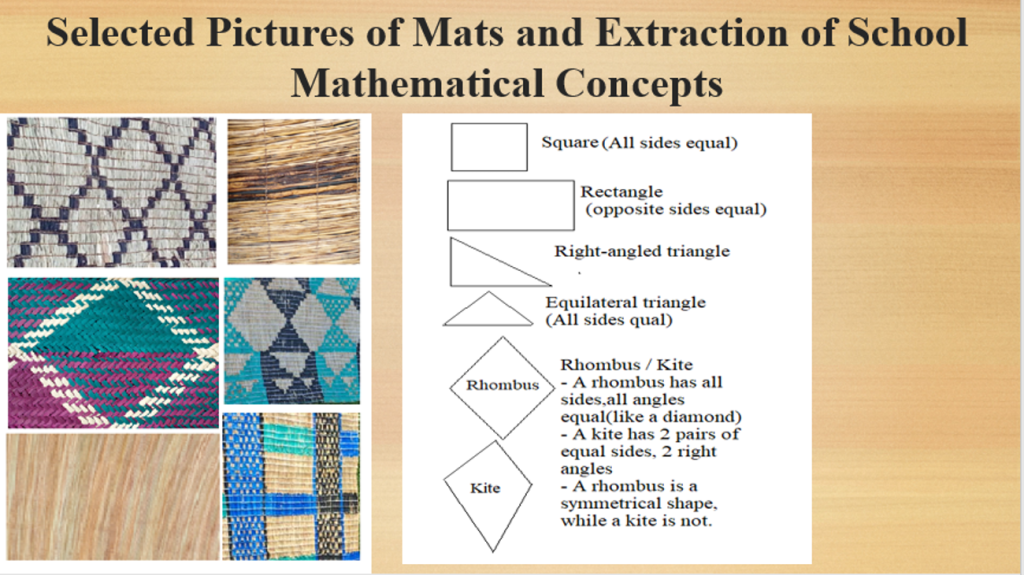
Makerere University continues to be at the forefront of educational innovation, and this research marks a significant step towards redefining how mathematics is taught in Uganda, ensuring that it resonates with students from all cultural backgrounds.
Research team
- Principal Investigator: Marjorie Sarah Kabuye Batiibwe
- Mentor: Assoc. Prof. Betty Kivumbi Nannyonga (Department of Mathematics, College of Natural Sciences, Makerere University)
- Master’s student: Julius Anthony Musinguzi (Master of Education in Science Education (Mathematics)
You may like
-
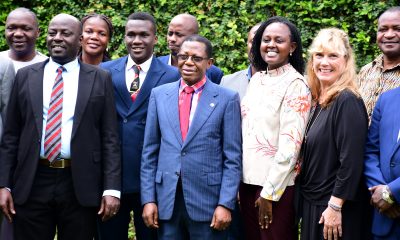

Makerere University embarks on developing e-Learning Digital Transformation Roadmap
-
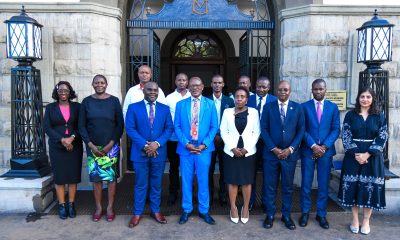

Mak, ITC sign MoU to Strengthen Actuarial Science & Insurance Education
-
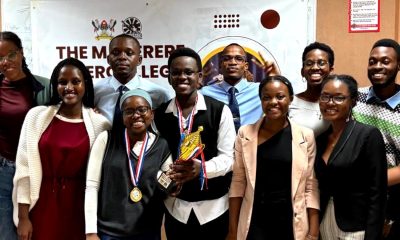

Inter-college Debate 2025 Seeks to Nurture Confident, Articulate, and Visionary Leaders
-
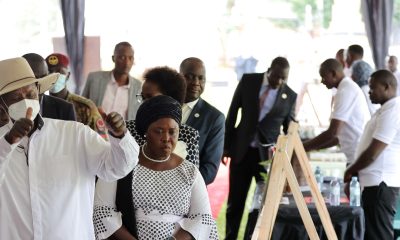

Mak-RIF Newsletter April 2025
-


Call for Applications: Admission to Postgraduate Programmes 2025/2026
-
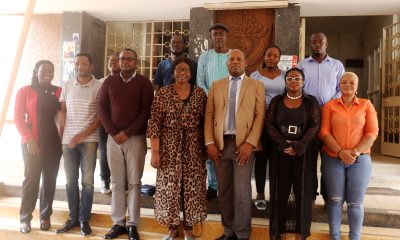

University of Zululand Explores collaboration in decolonization of curriculum and teaching of Kiswahili and isiZulu languages
Education
Makerere University embarks on developing e-Learning Digital Transformation Roadmap
Published
19 hours agoon
May 8, 2025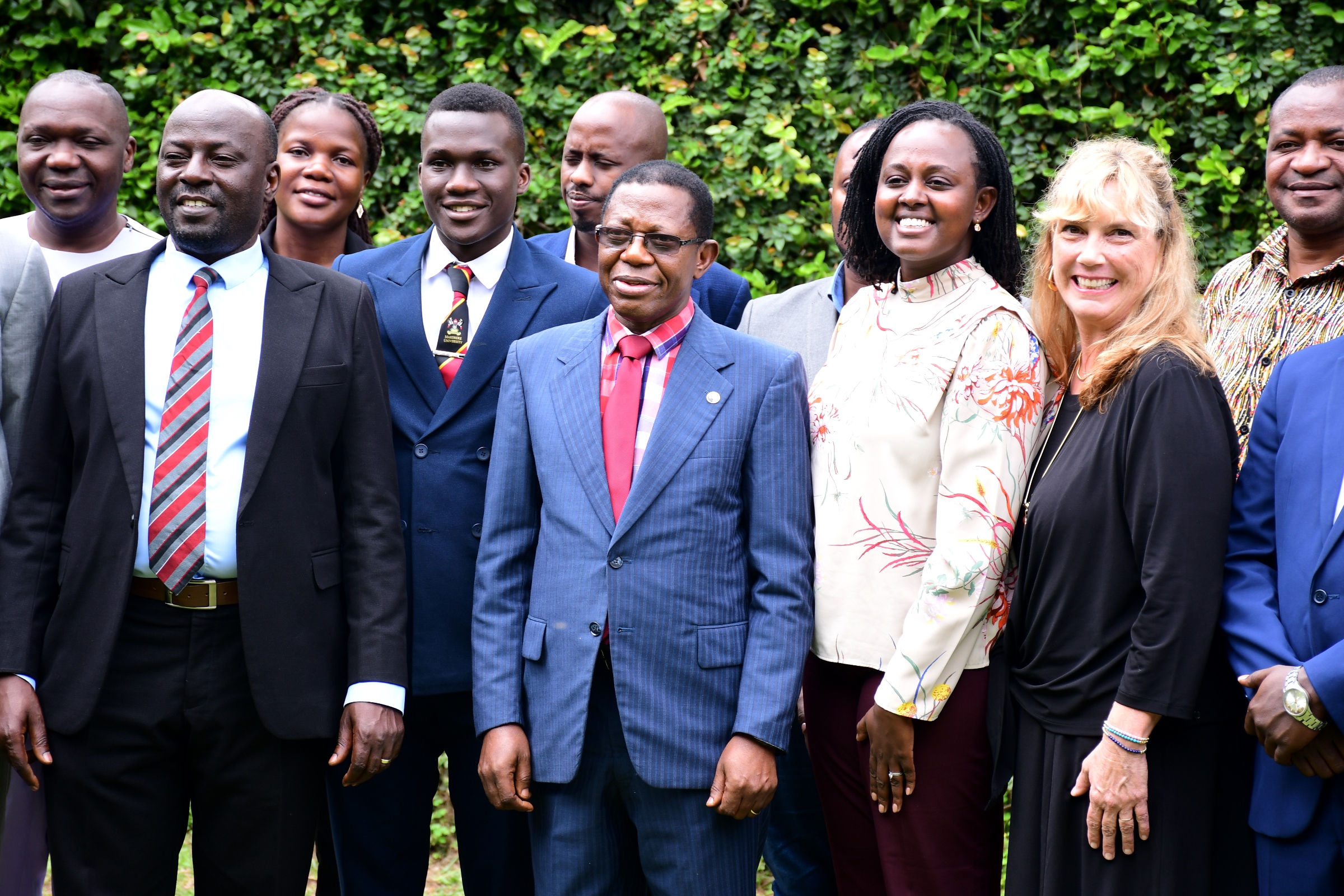
Makerere University has been selected to participate in Phase 2 of the e-Learning Initiative aimed at the development of a five-year digital pedagogy transformation roadmap (2025-2030).
This noble task championed by the College of Education and External Studies (CEES) through its expert team at the Institute of Open, Distance and e-Learning (IODeL) will shape the future of e-learning and digital education in Uganda.
In phase 2, the Mastercard Foundation commits to supporting e-Learning and digital transformation based on the needs of each institution. Makerere University’s consideration for Phase 2 follows the successful implementation of phase 1 of the Mastercard Foundation Scholars Program e-Learning Initiative (2021-2024), which registered remarkable achievements.
‘In a bid to consolidate the gains of phase 1 and transition into a digitally resilient and learner-centred institution, Makerere University has been selected to participate in phase 2 of the e-Learning Initiative. Led by the Mastercard Foundation in partnership with Arizona State University (ASU), phase 2 aims to support partner universities in designing and implementing a five-year digital pedagogy transformation roadmap (2025-2030),” highlighted Prof. Paul Birevu Muyinda, the Director of IODeL.
Speaking at the co-creation workshop held on 24th April 2025 at Speke Resort Munyonyo, Prof. Birevu Muyinda said: “During phase 1, Makerere University registered significant achievements in e-Learning. I am glad that you have convened here today during the e-Learning Digital Transformation workshop, to receive the dissemination results as we work together to prepare for phase 2, which focuses on the unique needs for each institution.”
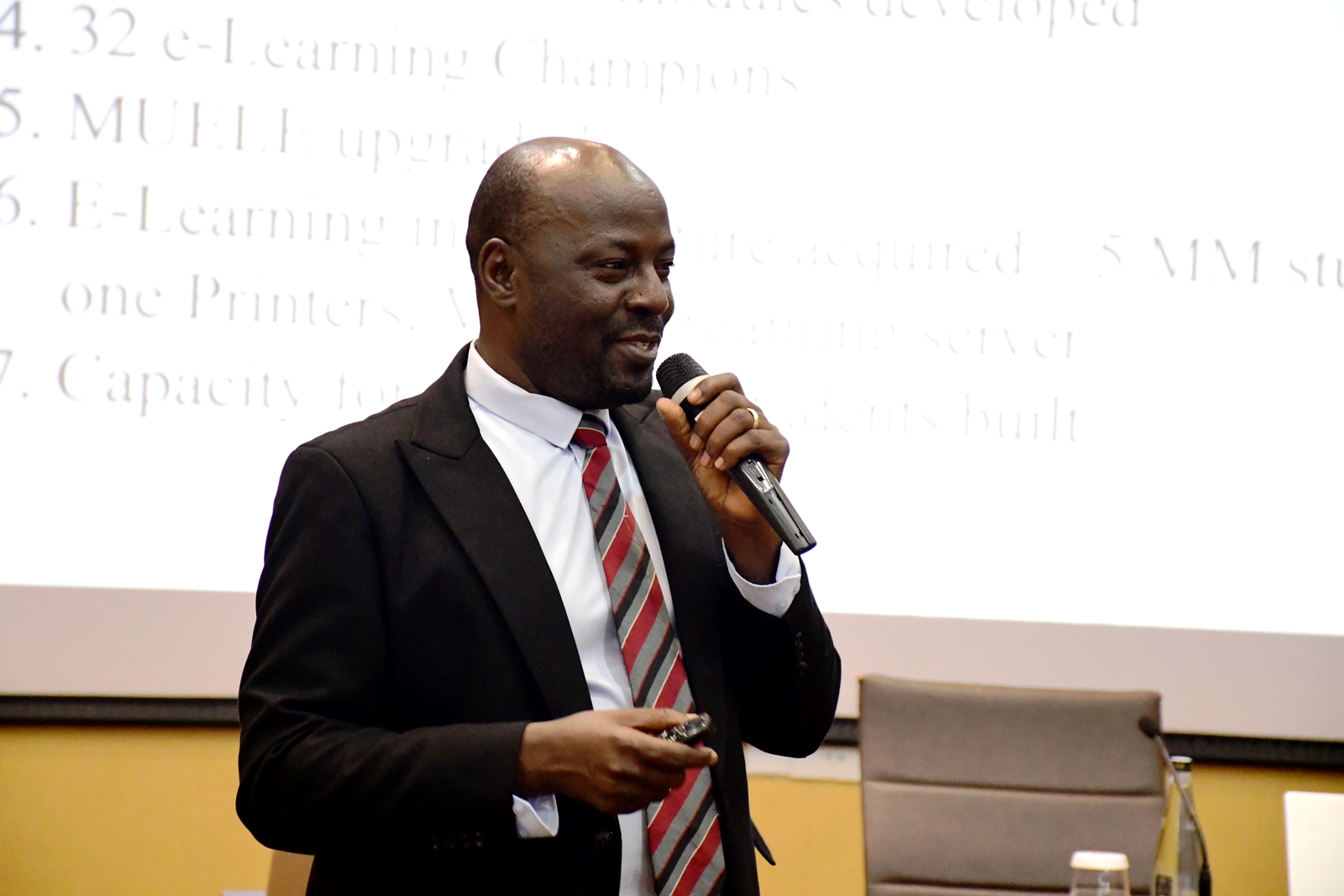
Through phase 1, which aimed at enhancing the e-learning capabilities of partner institutions, Makerere University strengthened the existing Makerere University e-Learning Environment (MUELE), conducted onboarding workshops for the university leadership, trained teaching staff and students, and engaged teaching staff to develop content for online courses.
According to Prof. Birevu Muyinda, the specific achievements of phase 1 of the e-Learning initiative included the following:
- Training of 1,280 faculty members
- Development of 2,579 courses out of 2,560 representing 100.74%
- Development of four (4) support services modules
- Capacity building for over 7,000 students
- Training and recruitment of 32 e-Learning champions
- Upgrading of the Makerere University e-Learning Environment (MUELE)
- Acquisition of e-Learning infrastructure namely five (5) multi-media studios, a video streaming server and all in one printers.
The co-creation workshop for phase 2 and dissemination of results for the concluded phase 1, brought on board over 75 participants comprising members of Makerere University Management, the Principal and staff of the College of Education and External Studies, a representative from the Ministry of Education and Sports, student leaders, the media, the Directorate for ICT Support (DICTS), Mastercard Foundation, Arizona State University(ASU)-USA, and a representative sample of staff from academic and administrative units of Makerere University.
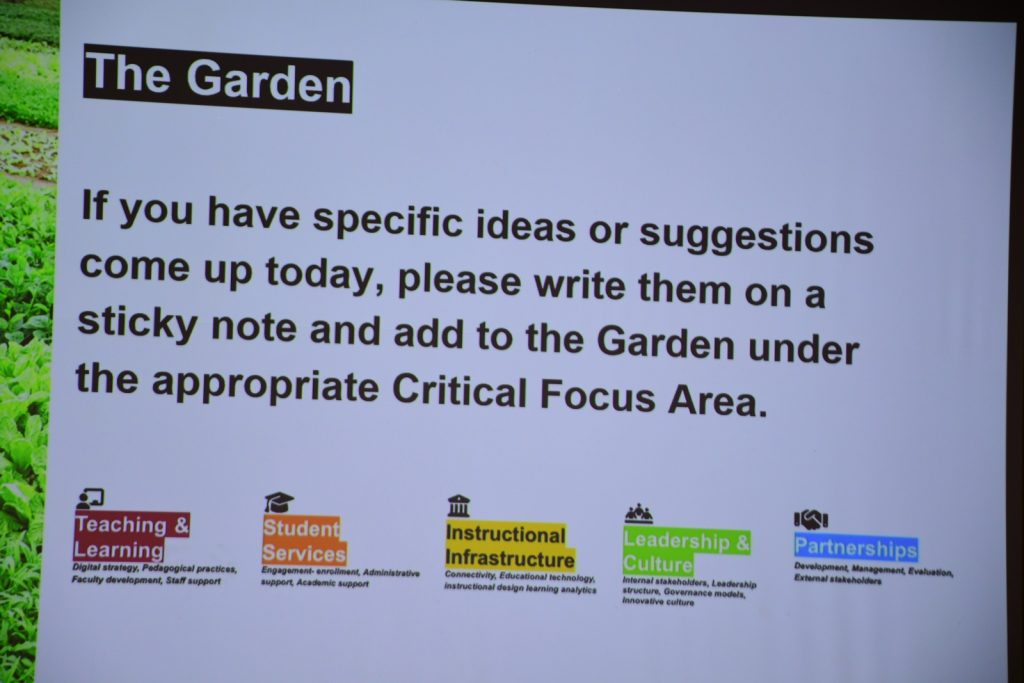
Facilitated by Arizona State University (ASU) working closely with IODeL, the interactive co-creation sessions involved taking into account the milestones from phase 1 and leveraging the successes, as well as coming up with proposed strategies for phase 2.
The co-creation workshop involved understanding the concept transformation road mapping, using a grid to identify the current state of e-Learning and digital transformation at Makerere University and the desired state, assessment alignment on shared vision for the current and the desired state, and identifying learner needs in line with the desired state, among other items.
The workshop adopted a holistic approach to digital transformation focusing on the following themes: teaching and learning, student services, instructional infrastructure, leadership and culture, and partnerships. For each cluster, the participants proposed immediate, short-term and long-term strategies with respect to digital transformation in those processes. With each group presenting during the plenary sessions, the co-creation workshop was a success. The ideas were captured instantly feeding into the proposal for the phase 2 e-learning digital transformation roadmap (2025-2030).
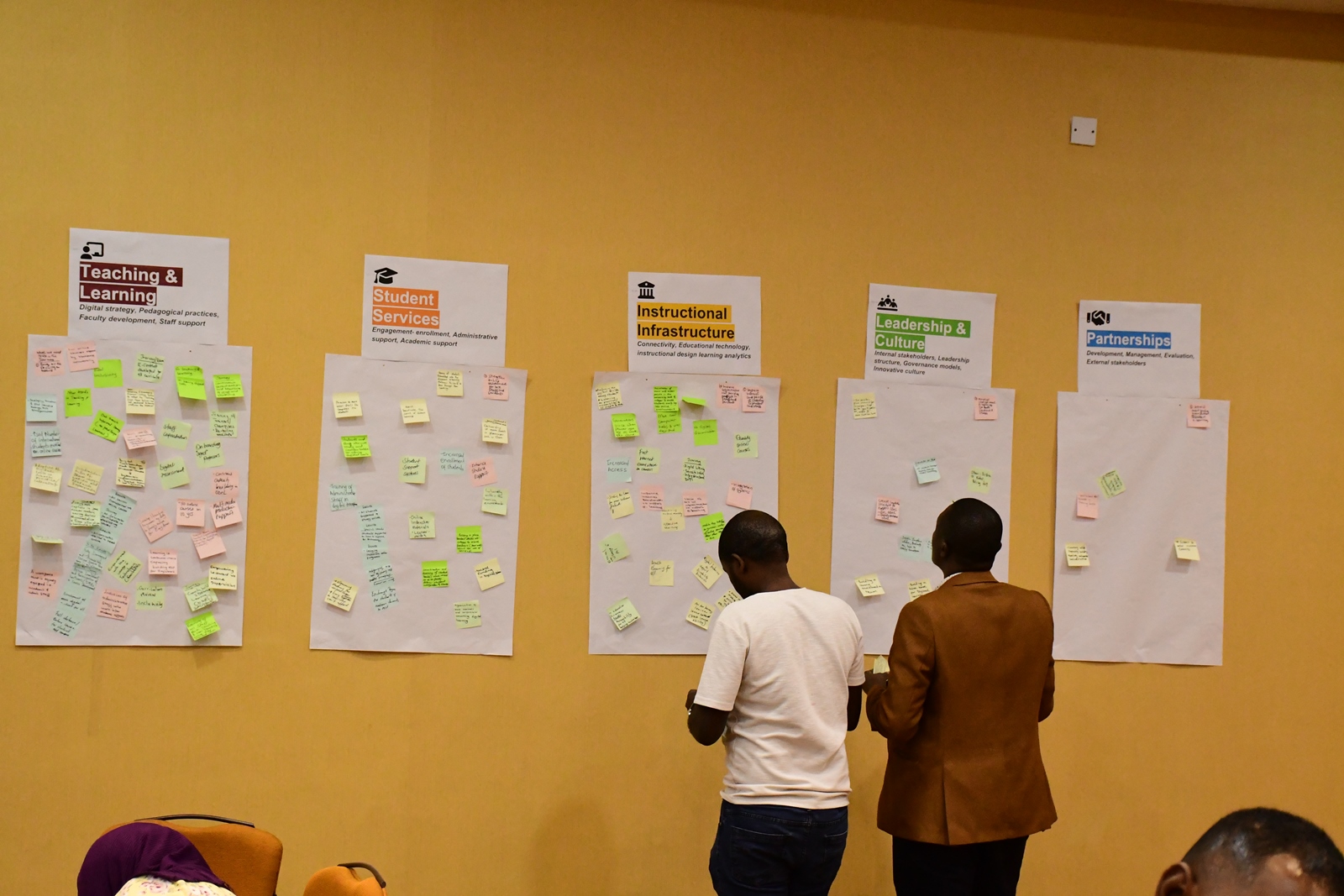
At this highly participatory workshop, reaching consensus was a key factor in determining the ideas that were included in the proposal.
In addition to the aforementioned clusters, some of the broader aspects that the co-creation teams highlighted should be prioritized included:
- Adoption of e-supervision of students
- Increasing enrollment of international students through e-Learning
- Reducing the digital divide among learners
- Ensuring digital inclusion with programs sensitive to learners with disabilities
- Capacity building programmes for administrative support
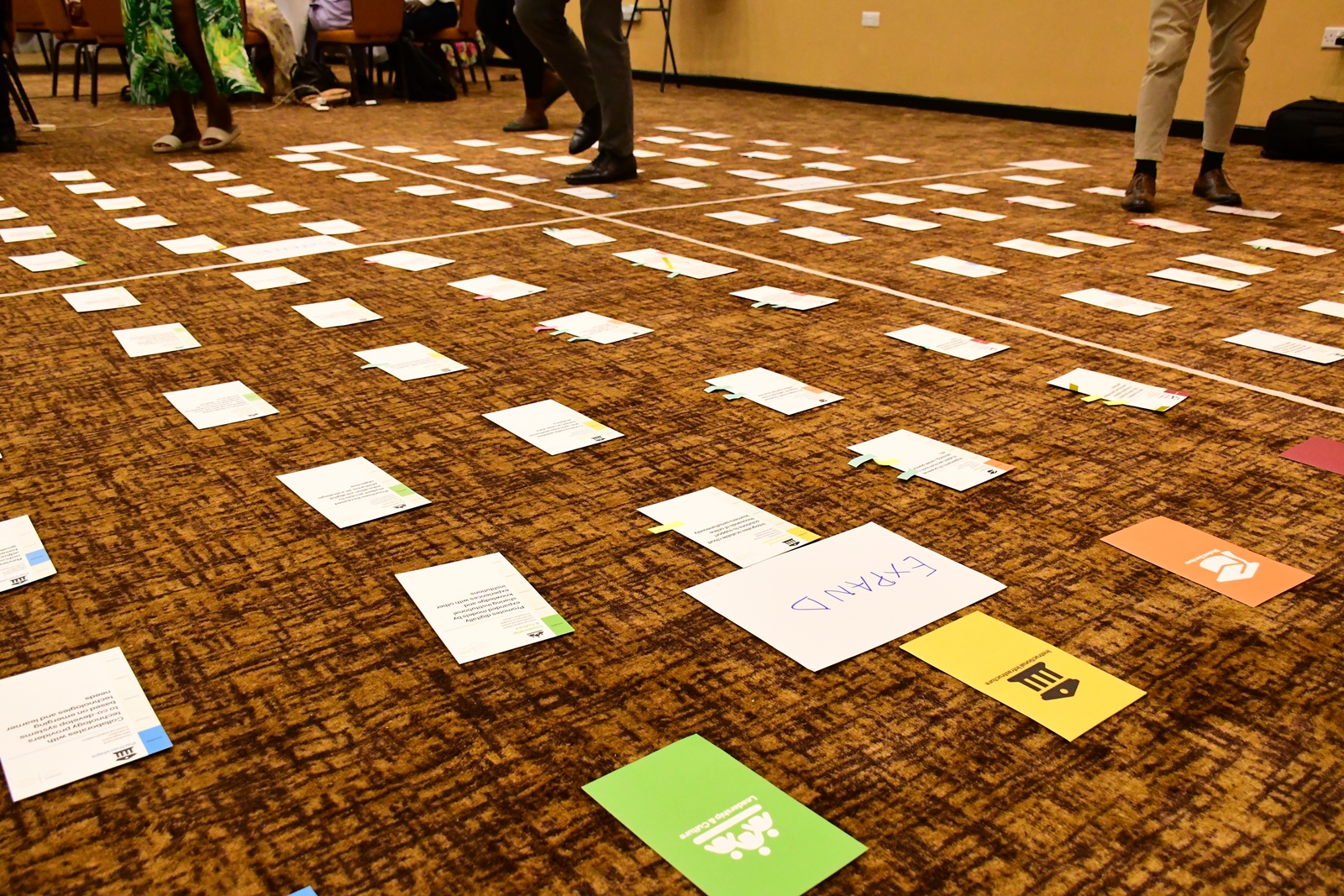
Opening the co-creation workshop, Prof. Buyinza Mukadasi, Ag. Deputy Vice Chancellor (Academic Affairs) of Makerere University, conveyed the congratulatory messages from the University Council and Management on the successful completion of phase 1 and its remarkable achievements.
On behalf of the University Management, Prof. Buyinza said, phase 2 of the e-Learning Initiative should be a revolutionary phase, igniting Makerere University to be a key player in digital education and integration of technologies.
Reflecting on youth empowerment, Prof. Buyinza highlighted that phase 2 is student-centred with e-Learning and digital pedagogies addressing the needs of learners. In addition, Prof. Buyinza underscored that this approach will increase the number of students accessing quality education programmes at Makerere University at the national and international levels.
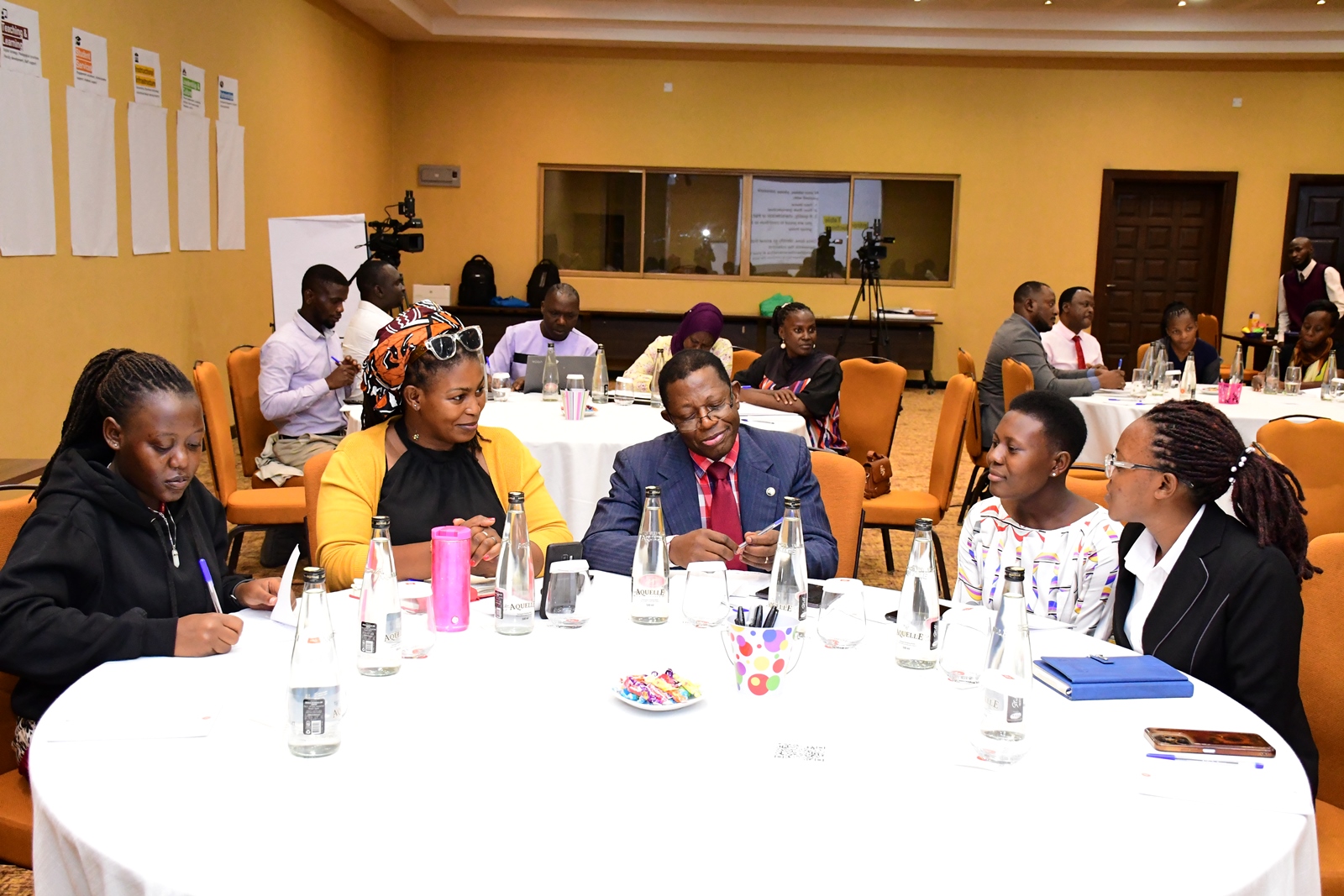
The Ag. Deputy Vice Chancellor (Academic Affairs) commended the Mastercard Foundation for partnering with Makerere University to empower the young people through education and technological advancements. Prof. Buyinza acknowledged the collaboration with the Mastercard Foundation and Arizona State University (ASU) for building the capacity of faculty at Makerere University.
Emphasizing the importance of building capacity, retooling and reshaping the curriculum to produce graduates who meet the demands of the modern workforce, Prof. Buyinza re-affirmed that Makerere University is a learning institution committed to embracing new approaches. He recognized the Institute of Open, Distance and e-Learning (IODeL) for holding onboarding workshops for the University leadership, staff and students in phase 1.
Prof. Buyinza testified that the onboarding sessions changed his perception, and transformed him into a firm believer in positioning e-Learning to champion the digital transformation agenda at Makerere University. He disclosed that he is a “convert” to the transformative potential of technology integration, learner-centeredness, industry partnerships, and lifelong learning, key features of University 5.0.
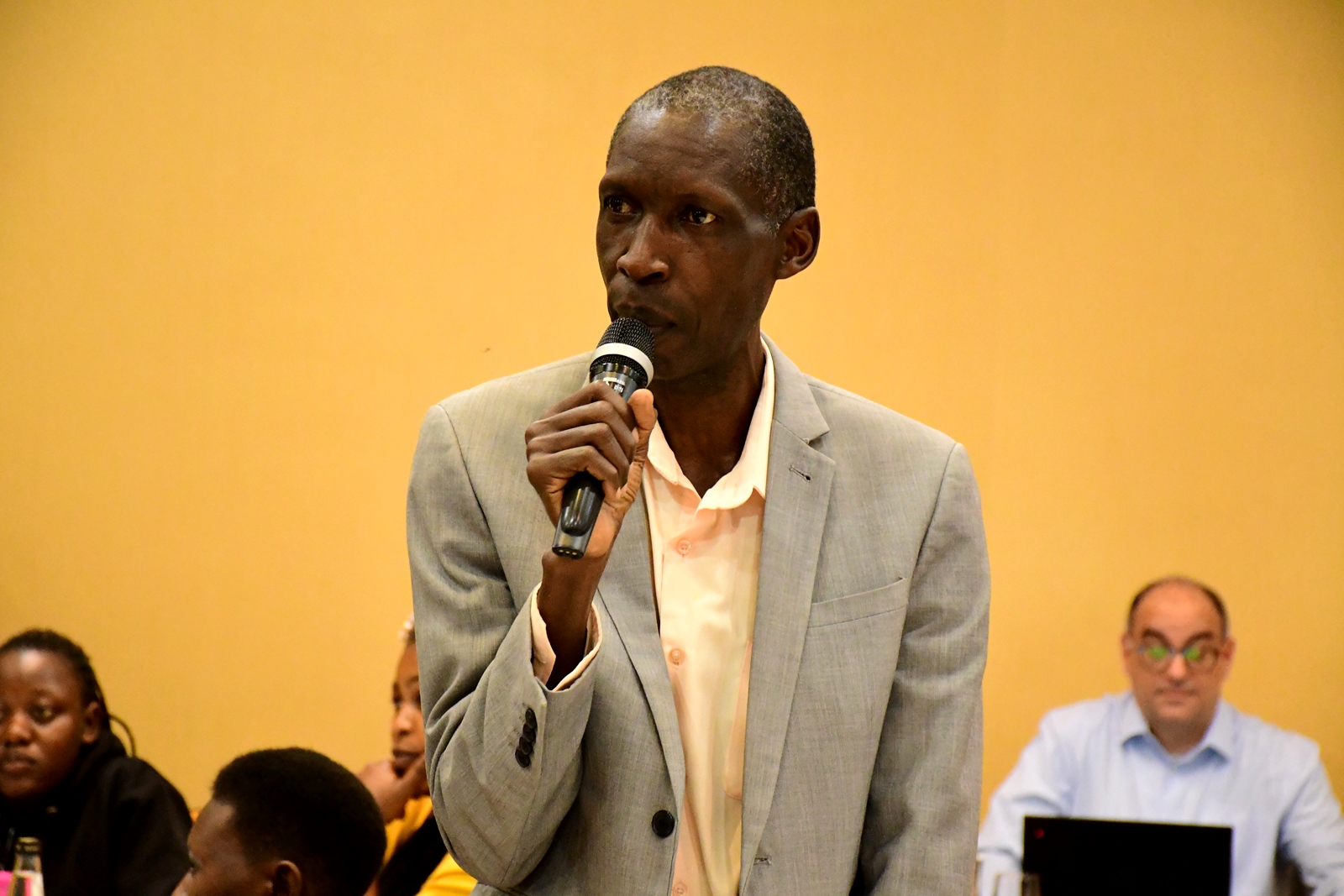
He urged participants to utilize the co-creation e-Learning digital transformation workshop to define institutional needs and expectations, allowing for a more rapid and collaborative advancement into the “revolutionary” phase 2.
Building on the Prof. Buyinza’s submission, the Principal of the College of Education and External Studies, Prof. Anthony Muwagga Mugagga informed the participants that phase 2, which focuses on e-Learning and digital transformation should empower the faculty and university at large to provide inclusive education. He implored the co-creation team and stakeholders to come up with digital strategies for students who are visually impaired and those with hearing impairments.
Prof. Mugagga emphasized the importance of continuous learning and self-examination, stating that even a professor should strive to be open to new knowledge. With reference to Socrates’ philosophy, he suggested that a life devoid of learning is not worth living.
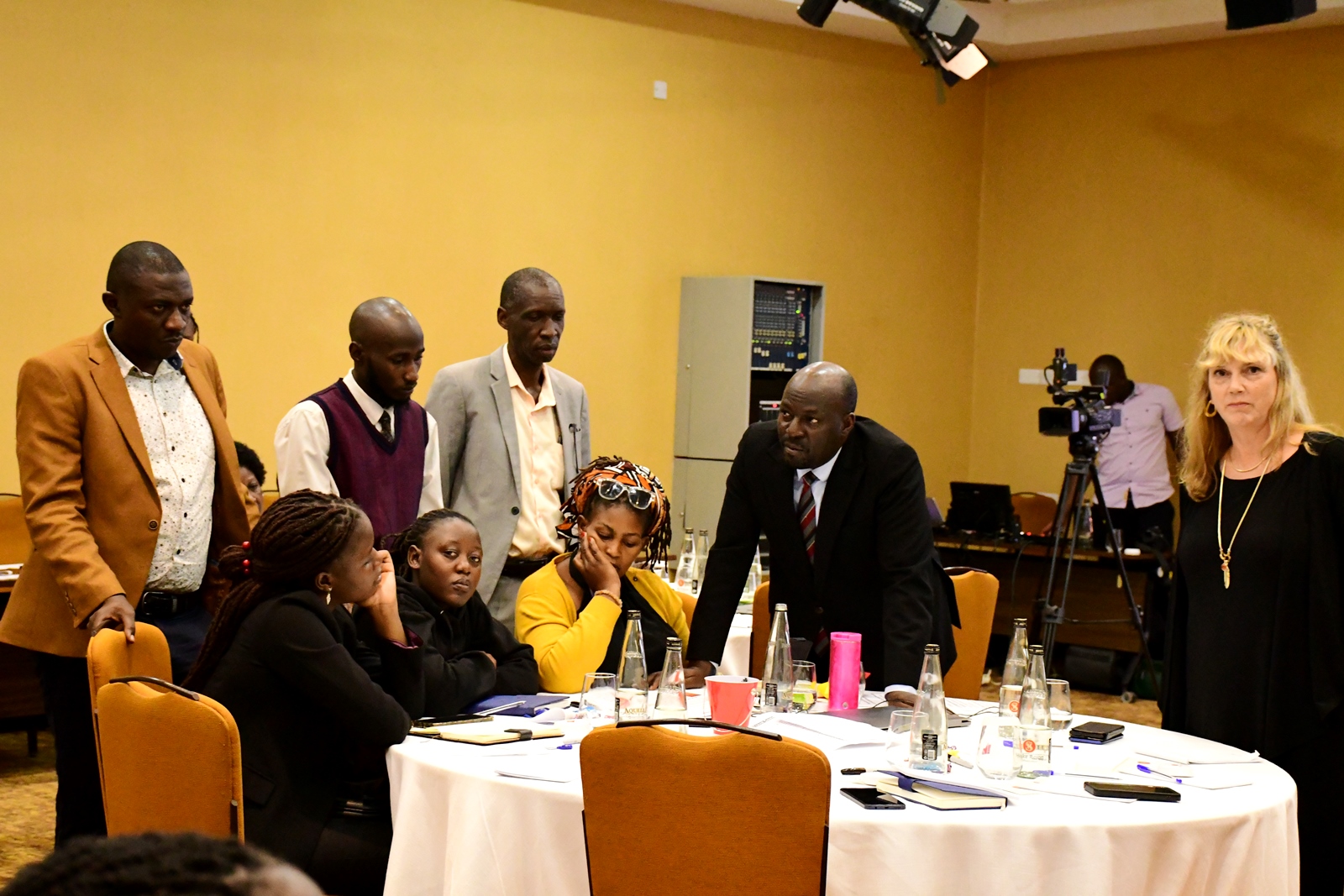
In a moving testimony, the Principal explained that he is always learning new ideas from his techy savvy son. Prof. Mugagga shared that his son continues to be instrumental in teaching him online safety principles and techniques. This experience underscored the generational gap in digital literacy and the importance of adapting to the evolving digital landscape.
The Principal expressed his hope to learn from the workshop, acknowledging that digital transformation requires everyone to be proactive in acquiring new skills.
On behalf of the students, Hon. Julius Kiganda, the Minister of Academic Affairs at Makerere University commended the organisers for including students in the e-Learning digital transformation workshop. Hon. Kiganda pledged active participation in the training to ensure that the interests of the students are effectively captured.
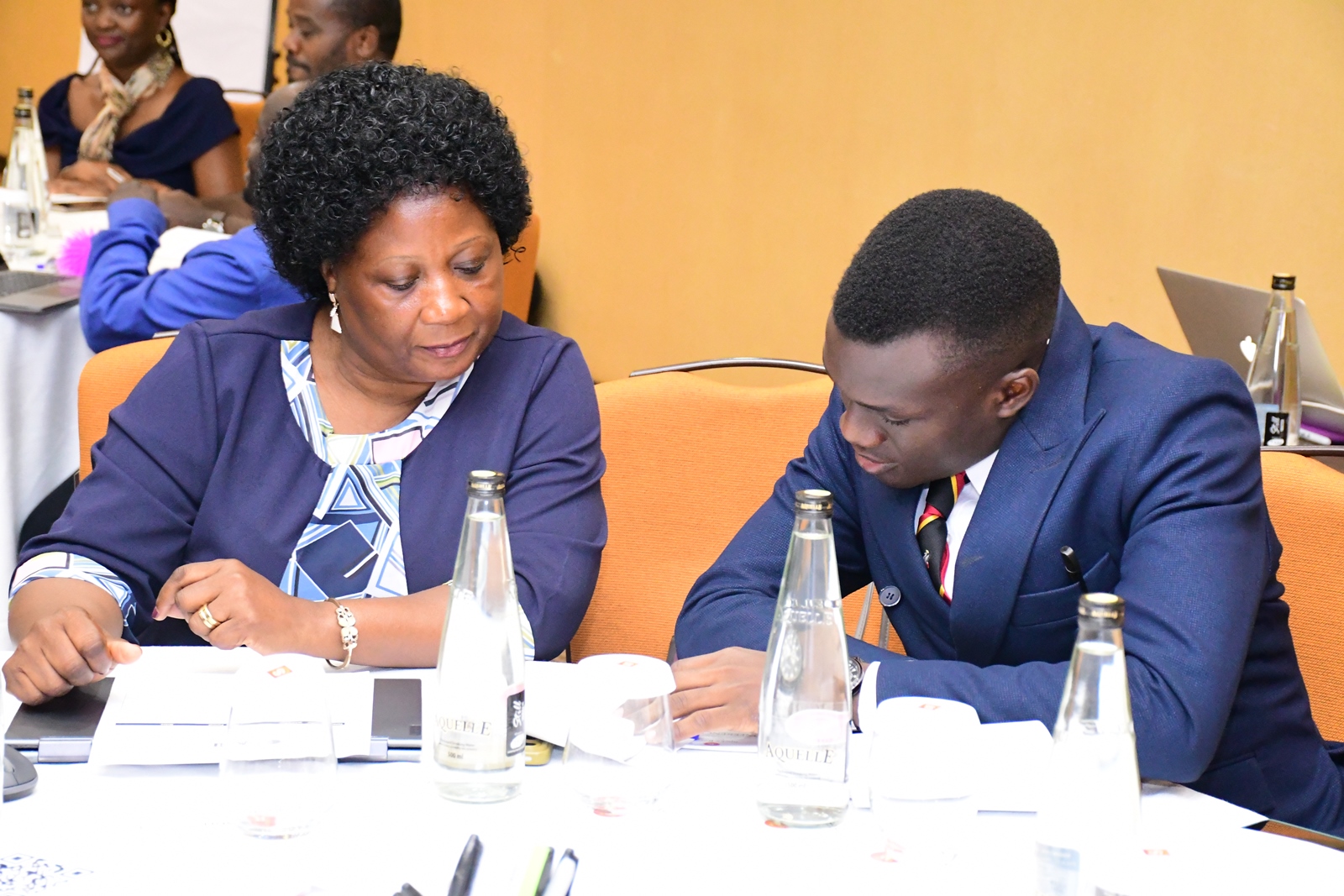
Evaluating phase 1, Ann Nielsen from Mastercard Foundation recognized that the institutions had built a solid foundation, prompting a transition into phase 2 to address the unique needs of each university.
“Phase 2 will prioritize scaling training and knowledge mobilization, offering opportunities for scholars to pursue learning design and technologies, graduate certificates, master’s degrees, and professional certificates tailored for individuals seeking instructional design knowledge.
“Mastercard Foundation will emphasize inclusive learning practices, collaborating with experts to ensure accessibility and equity. The Foundation aims to enhance digital infrastructure, focusing on student support systems, quality management, and data-driven decision-making in order to meet diverse learner needs,” Nielsen explained.
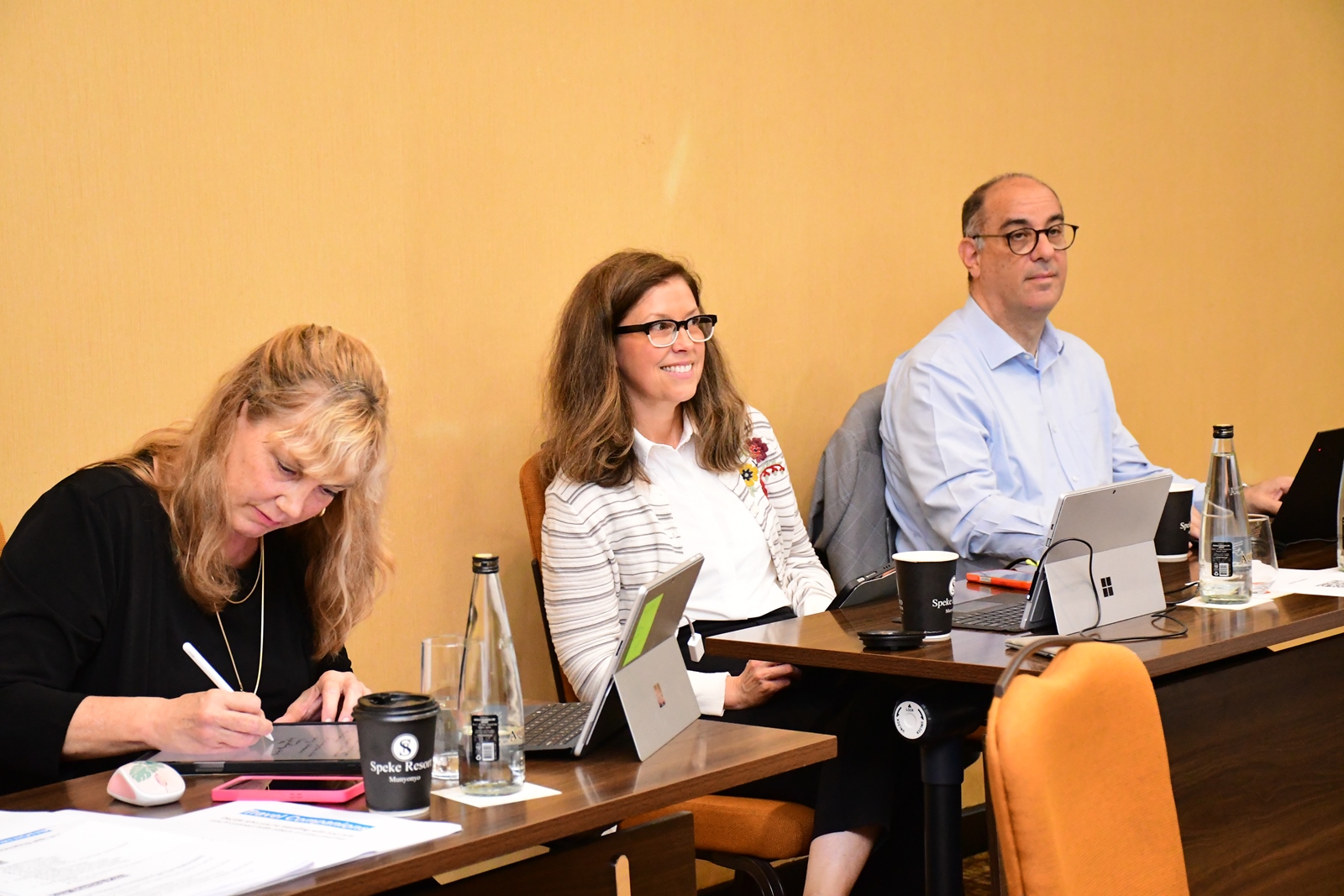
The Foundation revealed that the ultimate goal is to collectively impact policies across the continent, advocating for e-learning as a valid and accredited pathway to quality education. Recognizing the network’s growing maturity, the initiative aims to position participating universities as leaders and resources, fostering collaborative learning and co-creation.
The Foundation’s participation stems from a belief in the future of young Africans, seeking to equip them with education and skills to fulfill their careers by strengthening institutions and scaling innovative solutions through technology. The focus shifts from a reactive response to a sustainable and long-term initiative.
Regan Matsiko, the IT Officer at the Ministry of Education and Sports, highlighted the Ministry’s commitment to digital advancement, drawing on prior experience with the national digital transformation roadmap initiated by the Ministry of ICT. “This roadmap, built on five key pillars including digital scaling and infrastructure development, serves as a foundation for current initiatives within the education sector.”
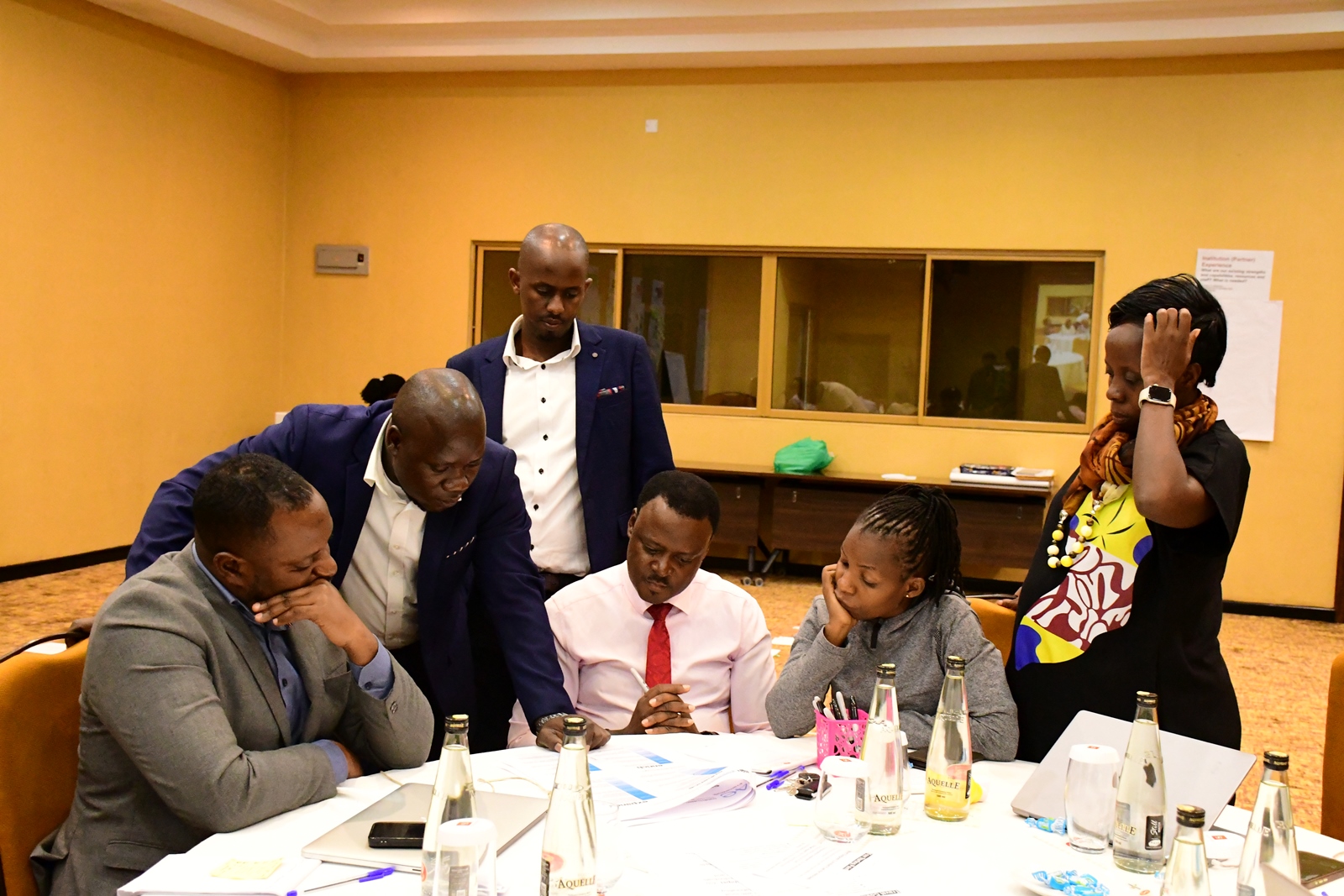
Matsiko emphasized the Ministry of Education and Sports’ development of a digital agenda last year as demonstration of a proactive approach to integrating technology.
He commended the partnership with universities in developing e-learning programs. Matsiko noted a shift towards a more integrated structure within the Ministry, where the ICT department now includes a dedicated e-learning department working directly with university partners, demonstrating a unified push for digital transformation in education.
The voices from key stakeholders set the stage for an interactive and high participatory training session. Lara Rabala the facilitator of the training outlined the primary objectives. These included: To collaboratively envision e-learning-driven classrooms, not only for the host institution but also for external partners, aligning proposed initiatives with McKinney’s strategies and broader community programs.
She noted that a key focus will be on formulating recommendations that correspond with critical areas to drive the development of a roadmap and implementation plan.
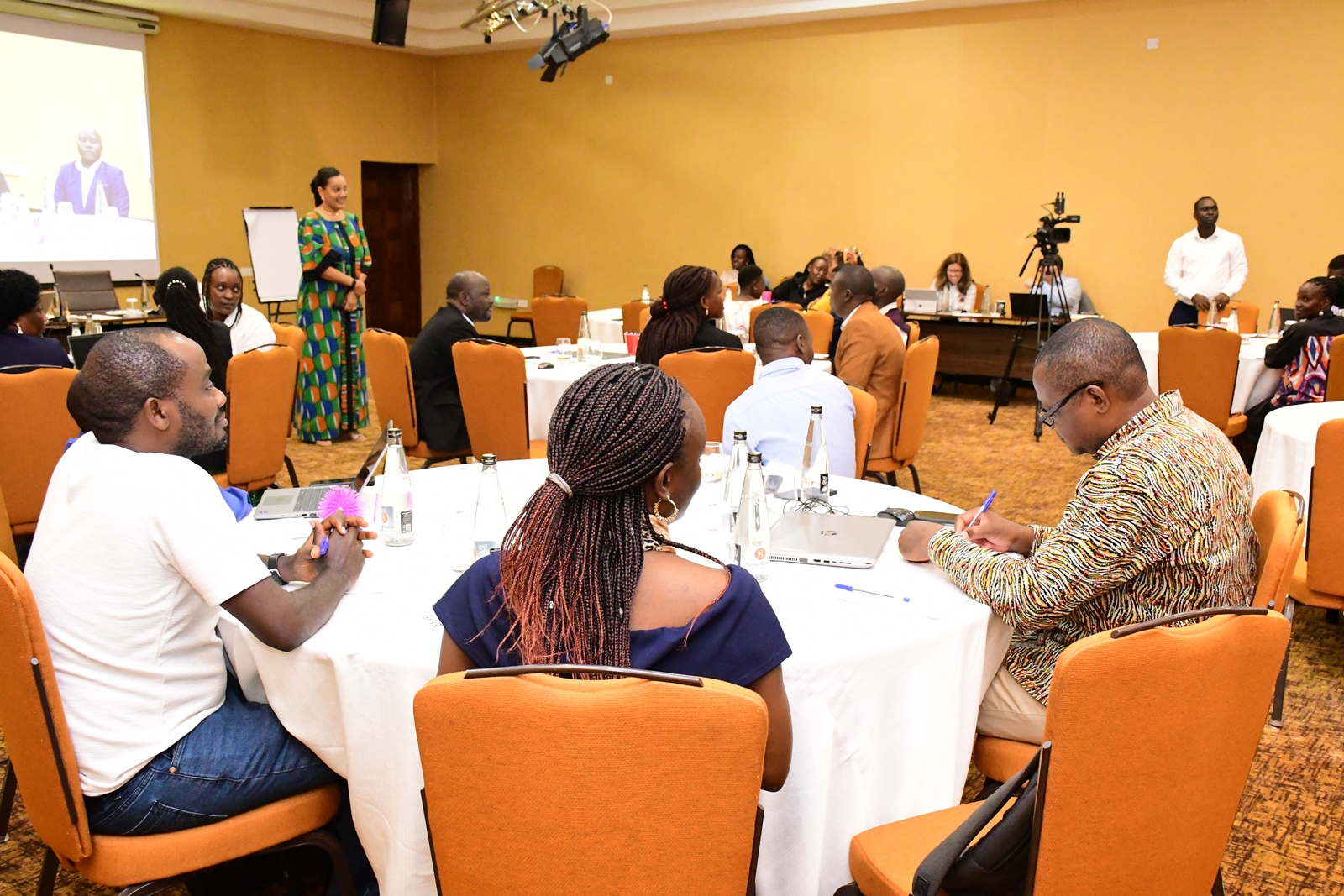
Labala stressed that the aim is to establish a clear vision for the future, crafting a transformative roadmap and a practical implementation plan. This roadmap will serve as the foundation for a tangible proposal to attract funding and partnerships, articulating the vision and direction for key learning and behavioral transformation.
Trainees were encouraged to respect the past as the foundation for the present and future, while also imagining innovative possibilities. Trainees, regardless of their expertise, were urged to maintain curiosity, open-mindedness, and value every voice.
The co-creation sessions featured the following clusters:
- Teaching and learning: Digital strategy, pedagogical services, faculty development and staff support
- Student services: Engagement-enrollment, Administrative support and Academic Support
- Instructional Infrastructure: Connectivity, Educational technology, and Instructional design learning analysis
- Leadership and Culture: Internal stakeholders, Leadership structure, Governance models, Innovative Culture
- Partnerships: Development, Evaluation and External Stakeholders
Closing the co-creation workshop, Prof. Birevu Muyinda said: “The exercise has presented us with an understanding of the major activities to be undertaken and the key priorities.”
With the support of the Mastercard Foundation and other partners, Makerere University is focused to develop a comprehensive e-learning roadmap, driving innovation and excellence in education.
Education
University of Zululand Explores collaboration in decolonization of curriculum and teaching of Kiswahili and isiZulu languages
Published
1 week agoon
April 30, 2025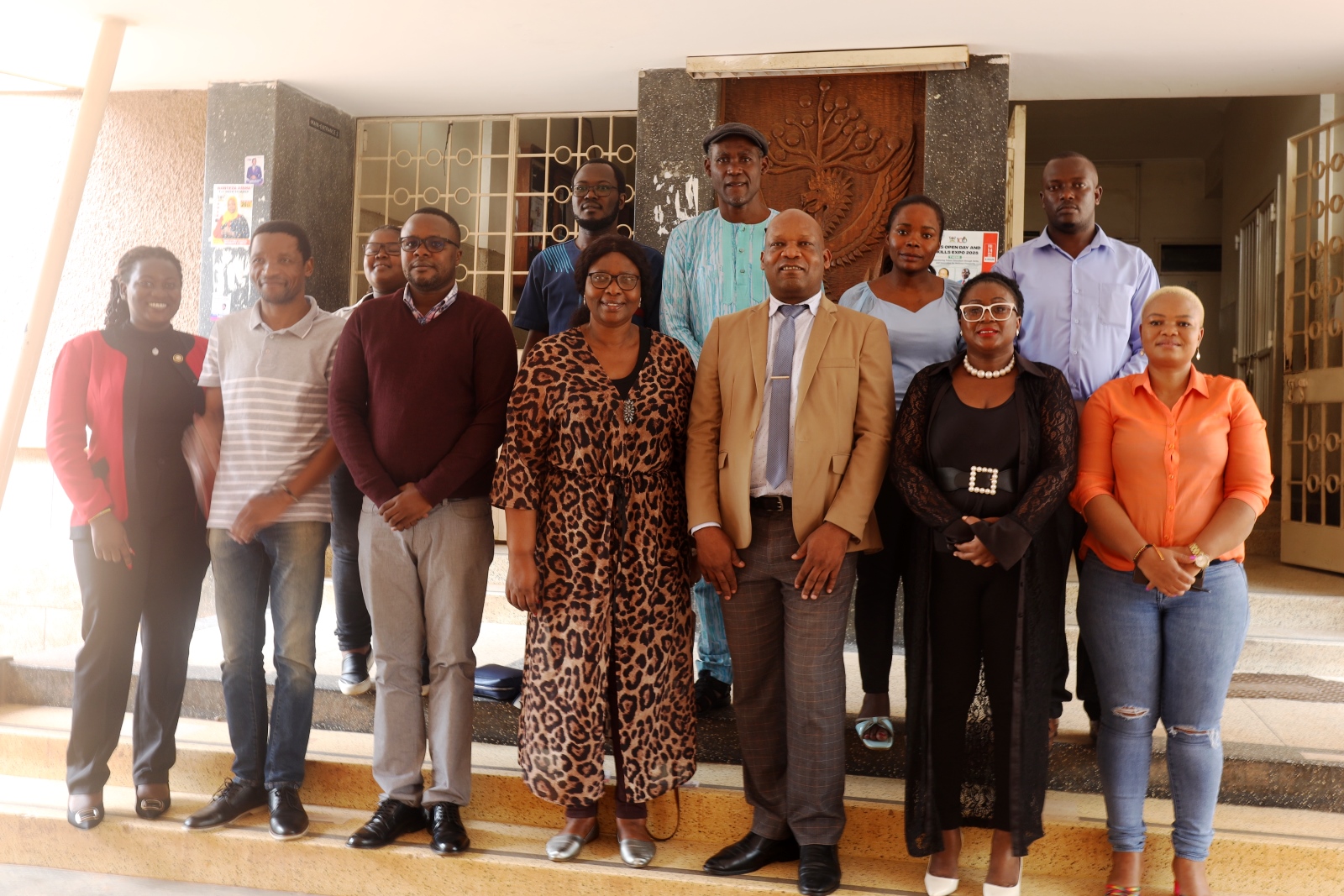
On 29th April 2025, a delegation from the University of Zululand, South Africa led by the Deputy Vice Chancellor (Engagement and Transformation), Prof. Byron A. Brown visited the College of Education and External Studies (CEES) at Makerere University to discuss collaboration opportunities specific to decolonization of the curriculum in African universities, teaching pedagogies and re-positioning of African languages in education institutions.
The term decolonization of education is a central theme within the African Union’s agenda 2063, which envisions a united and self-reliant Africa. This agenda emphasizes the need for an education system that reflects African values, knowledge systems, and cultural identities, further supporting the ongoing push for integrating indigenous knowledge into formal education.
Underscoring the value of collaboration between Makerere University and the University of Zululand, Prof. Brown stated that both institutions will be in position to promote African values and knowledge, promote local languages and develop a socially responsive decolonized pedagogy.
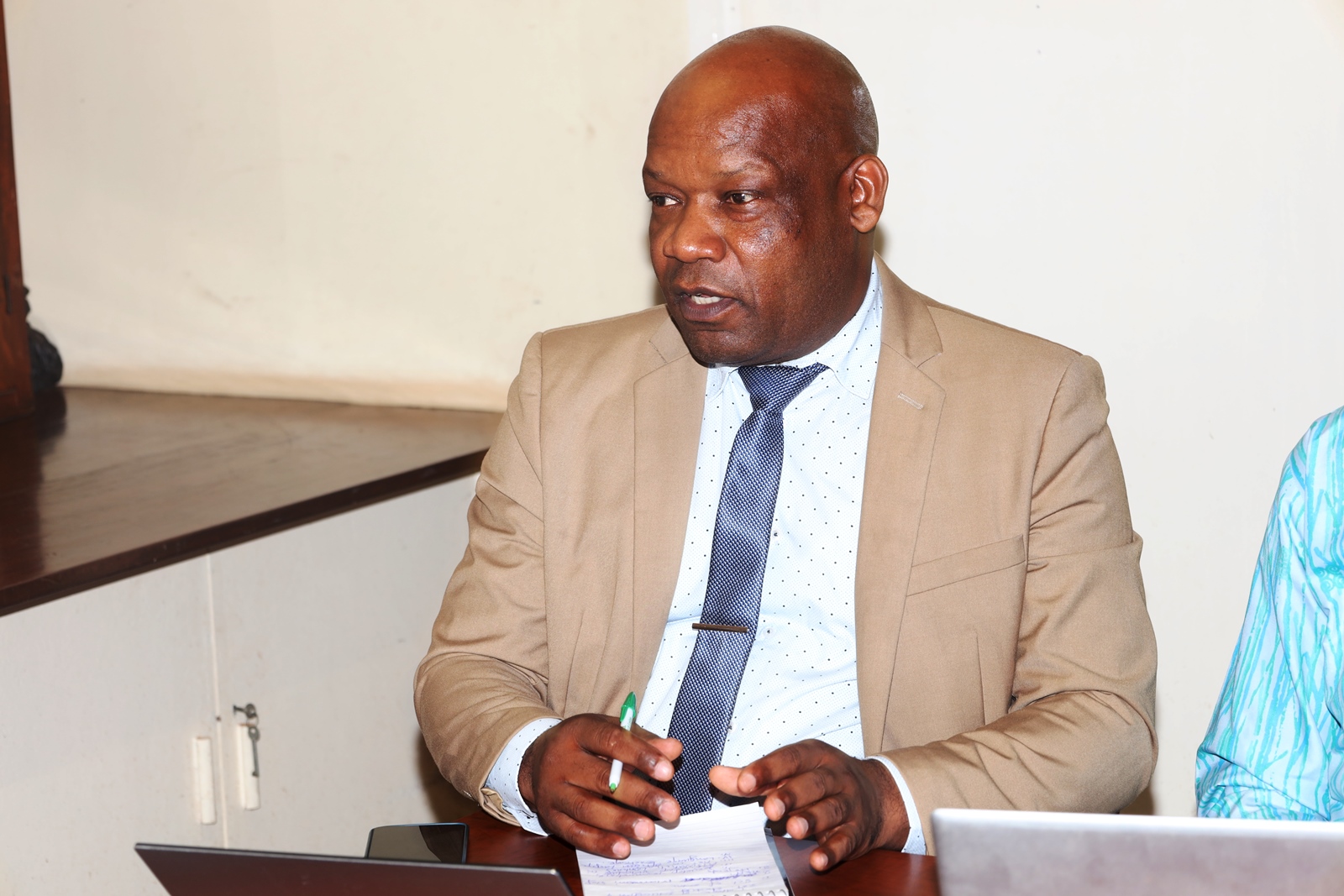
It is envisaged that Makerere University’s rich history and impact on the African continent will significantly enrich the University of Zululand’s project aimed at building authentic African universities.
In the morning hours, the delegation from the University of Zululand held a strategic meeting with the Vice Chancellor of Makerere University, Prof. Barnabas Nawangwe and some members of Makerere University Management. Quoting the proceedings of the meeting, Prof. Brown was pleased to note that Makerere University has ten (10) Colleges and a significant number of Schools and Departments, which will play a central role in the collaboration.
At the core of this interaction was the language question, which is central in the decolonization agenda with several researched opinions and respected voices at the national and global levels advocating for re-positioning of local or African languages.
Consequently, at the College of Education and External Studies, the delegation interacted with staff from the Kiswahili Section under the Department of Humanities and Language Education where issues of knowledge decolonization and exchanges were central.
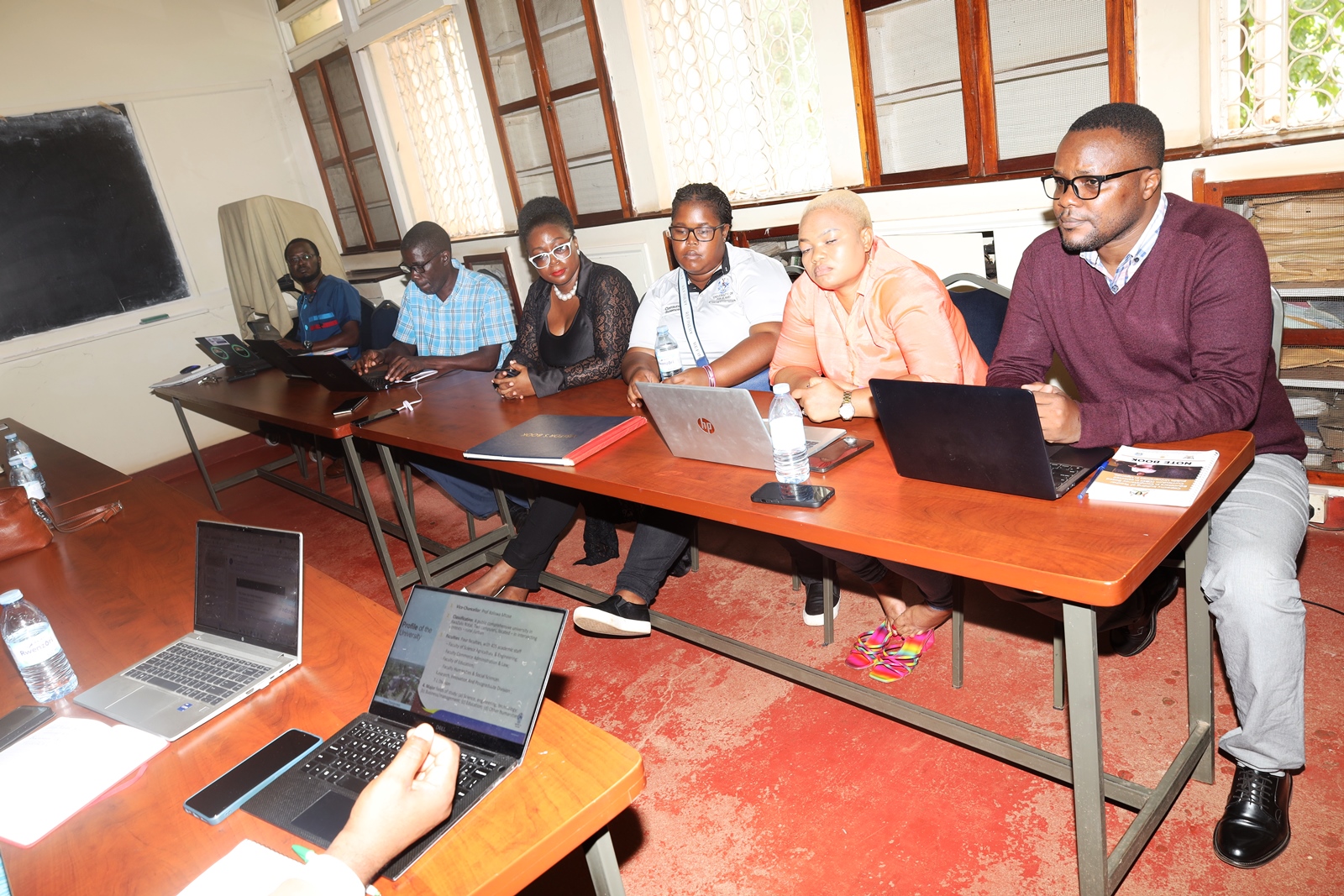
During the interaction, Prof. Brown highlighted that the University of Zululand is committed to the implementation of the theme that focuses on strong institutions, education and social justice.
Stating the main purpose for visiting the Kiswahili section, Dr. Bongephiwe Myeni Gladness, a Lecturer at the Department of African Languages and Culture, University of Zululand highlighted that they are interested in introducing Kiswahili as one of the African languages at the University of Zululand.
“We have some interventions such as taking Kiswahili to Zululand, working on the online teaching and internationalization program. We are promoting research in African languages. We have students that are doing research in isiZulu,” she said.
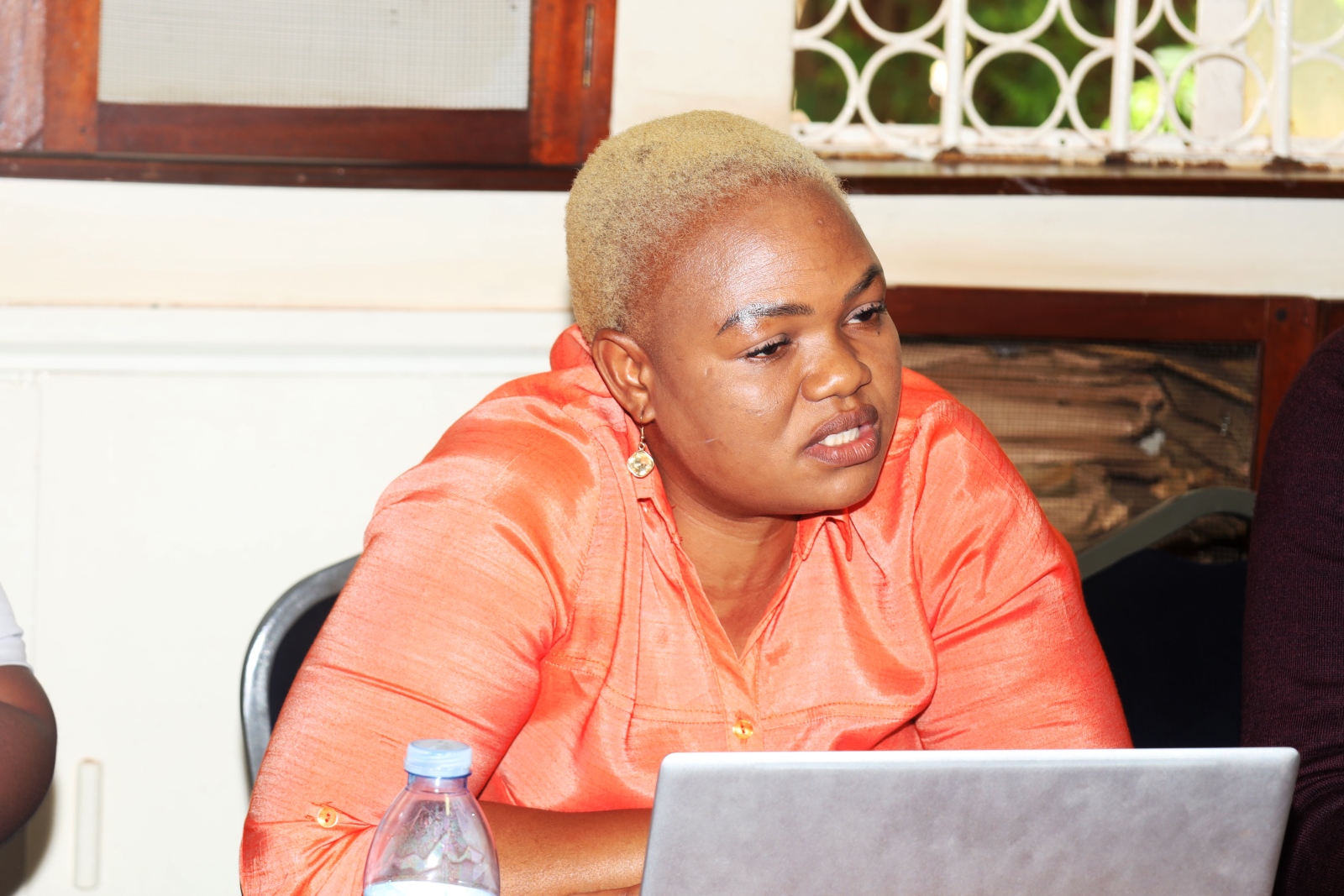
Dr. Bongephiwe reiterated that their objective is to create collaborations with African Universities. Highlighting that Kenyatta University and Moi University in Kenya were onboard, they visited Makerere University to interact with the University Management and faculty on matters pertaining to decolonization of the curriculum and academic exchange.
Building on the commitment that the delegation from the University of Zululand had received from the Vice Chancellor and the University Management, Dr. Caesar Jjingo, a Lecturer specializing in Kiswahili language pedagogies and materials development highlighted the readiness of the teaching staff to participate in the collaboration aimed at promoting the Kiswahili and isiZulu languages.
“It was an insightful engagement with the delegation in relation to pedagogy, research collaboration and language students’ exchanges purposely to advance the teaching of Kiswahili and isiZulu languages at the University of Zululand and Makerere University, respectively,” said Dr. Jjingo.
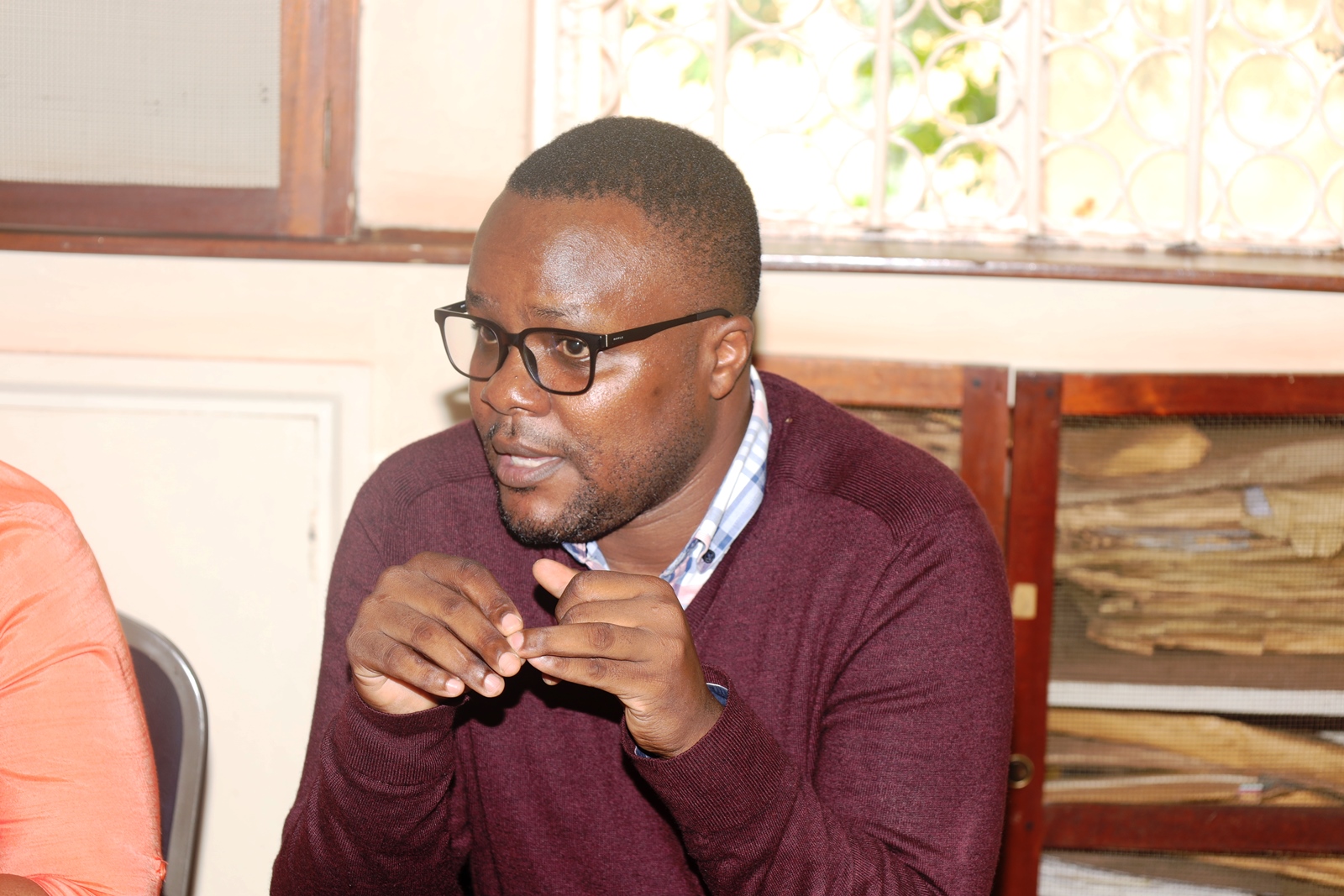
With the short term, medium and long term strategies being undertaken by the College of Education and External Studies to decolonize education in East Africa, the coming on board of the University of Zululand from South Africa expands the spectrum to the African continent.
On 9th and 10th April 2025, the College of Education and External Studies at Makerere University hosted the 3rd East African Teacher Education Symposium under the theme, “Curriculum Development and Decolonization of Education in East Africa.”
Supported by the Norwegian Agency for Development Cooperation (Norad), the Capacity Building for Research-Based Teacher Education (CABUTE) project with its partner institutions namely Makerere University, Kyambogo University, University of Bergen in Norway, Western Norway University of Life Sciences and the Uganda National Institute for Teacher Education (UNITE) played a pivotal role in making the decolonization of education a topical issue.
During the symposium, experts called for the integration of indigenous knowledge into Uganda’s education system to make learning more relevant, practical, culturally aligned with the communities.
The Keynote Speaker, Prof. Proscovia Namubiru, the Acting Vice Chancellor at UNITE highlighted that much of Africa’s indigenous knowledge was suppressed during the colonial period. She noted that the pre-colonial African knowledge in various fields-was often deemed “satanic” or primitive by missionaries and colonial leaders. This view led to the promotion of Western educational models, which largely ignored and erased the indigenous practices.
Prof. Namubiru advocated for a holistic multi-disciplinary approach that values indigenous practices alongside formal education. “Education institutions must form strong, respectful relationships with communities to ensure that indigenous knowledge is shared appropriately,” she said.
Tackling the key factor of language, Prof. Namubiru decried the practice of suppressing the local languages or African languages, and promoting the foreign languages.
She observed that even when the colonialists left, schools and universities in Uganda have continued to promote foreign languages to the detriment of African languages. She reminded the audience about the practices in different schools where learners are punished for speaking vernacular. According to Prof. Namubiru, referring to local languages as “vernacular” was aimed at making them inferior.
Acknowledging that decolonization of the curriculum should bring on board everyone, a step that involves starting with liberating the mind of each individual, Prof. Namubiru urged the participants to start with the small steps for instance stopping the punishments for speaking “Vernacular” and popularizing the usage of the local or African languages.
Education
Makerere University’s Role in the Fourth Industrial Revolution: A Novel Pedagogical Approach
Published
2 weeks agoon
April 22, 2025By
Mak Editor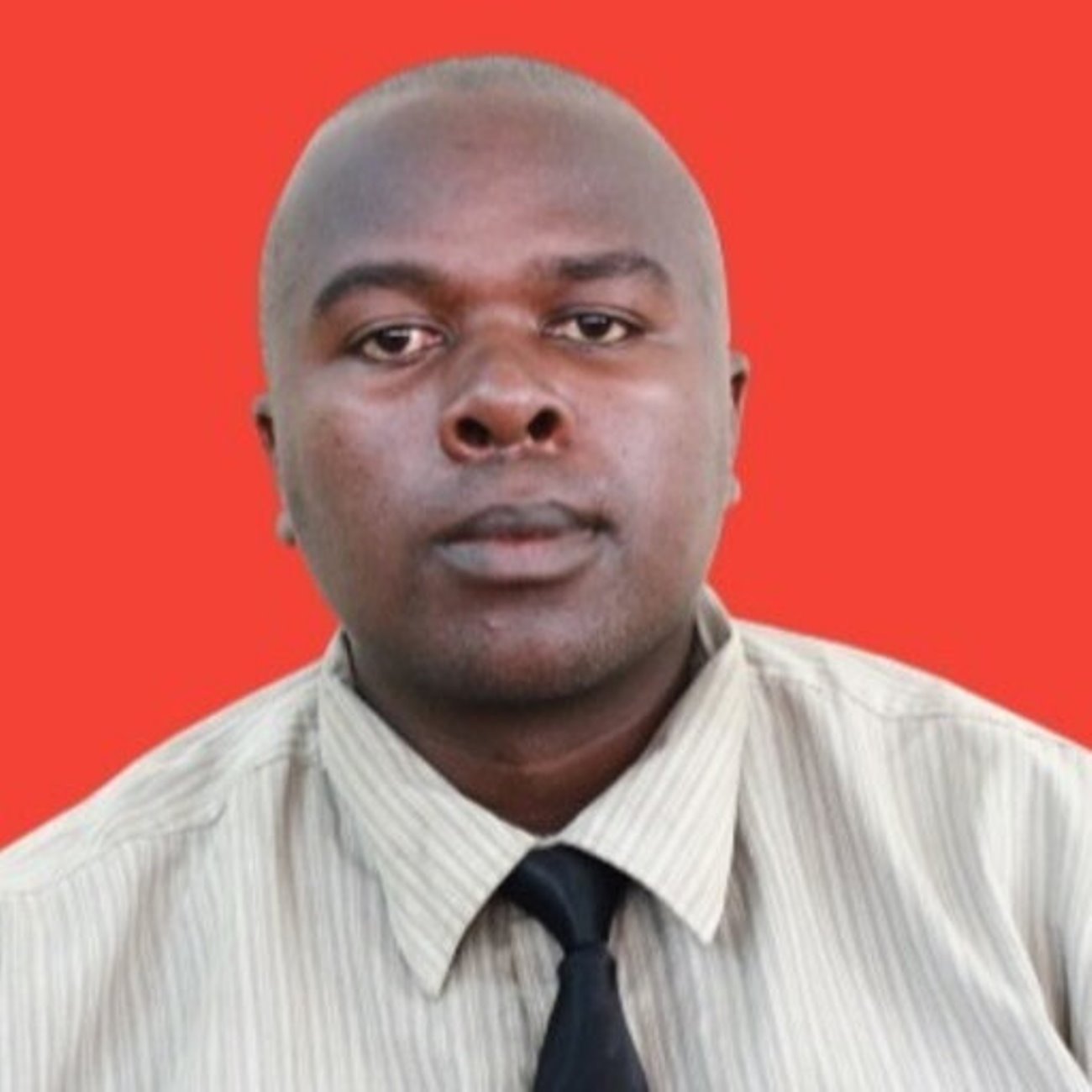
By Eutychus Ngotho Gichuru
Fourth Industrial Revolution (4IR) is revolutionizing the world economy by connecting the physical, digital, and biological worlds through technologies like artificial intelligence (AI), robotics, Internet of Things (IoT), and blockchain. For a developing nation like Uganda with long-standing problems like youth unemployment and poverty, the 4IR presents a chance to bypass development phases and achieve growth that includes all segments of society. This is attainable only if education is revolutionized, particularly in the universities.
Makerere University, which is Uganda’s national university, is well poised to drive the process. If Makerere deploys a novel pedagogy model Transdisciplinary Experiential Learning Ecosystems (TELE), it will produce 4IR leaders, innovate, and tackle local issues. TELE, which is focused on transdisciplinary collaborations, experiential learning, and exosystemic relationships, can be a key enabler of Makerere and Uganda’s 4IR readiness.
Established in 1922, Makerere University has shaped leaders who have carved out the East African future. Its traditional pedagogy framework, which is grounded in silo disciplines, rote memorization, and theory-led priority, has no match to the 4IR demands. Based on the World Economic Forum, 65% of the school children today will find themselves in careers not yet thought of and which require skills such as thinking, adaptability, and being technology literate.
In Uganda, where youth are now unemployed at approximately 13% and even underemployed, the universities must prepare the graduates with the ability to be job creators as well as job seekers. 4IR’s emphasis on networked systems, such as AI and environment, climate, and policy integration, requires a different brain. TELE offers Makerere the chance to reinvent learning so that it can leverage responsiveness to 4IR as well as Uganda’s socio-economic context.
What then is TELE? Transdisciplinary Experiential Learning Ecosystems brings together three ideas: transdisciplinary learning, experiential education, and ecosystem thinking. As opposed to multidisciplinary practices that cross between disciplines, transdisciplinary extends further to build new systems of knowledge. Experiential learning emphasizes problem-solving through practice in the real world, and ecosystem thinking facilitates interdisciplinary engagement among students, lecturers, industry, communities, and government.
TELE envisions Makerere as a vibrant node where learning overflows from lecture halls into industry and society. It is grounded on 4IR-appropriate competencies, creativity, cooperation, and agility but situates education within the Ugandan situation to make it locally responsive yet globally competitive.
The TELE system is novel yet realistic. It involves building nodes transdisciplinary in nature, both physical and virtual, where scholars from every department, engineering, social sciences, medicine, arts, join in solving issues confronting the real world. As an example, a “Smart Agriculture” lab would require students to design IoT-based irrigation, soil testing, and business plans for community ownership.
Experiential learning project work would engage students in semester-long projects, e.g., urban flooding solutions in Kampala or health access in rural areas, using 4IR technologies like AI or blockchain. Ecosystem partnerships with industry (e.g., MTN Uganda), government (e.g., Ministry of ICT), and societies would collaborate to coproduce curricula and fund projects jointly. Access to 4IR tools and far-distanced collaboration would be eased by digital solutions, with restructured assessment based on portfolios instead of traditional exams.
The future potential of TELE is to empower students with capabilities to be participants in the dynamic, networked society of 4IR. 4IR dissects industry silos, therefore a programmer writing software has to learn about user psychology, a doctor must learn AI diagnostics, and a policymaker has to balance data privacy. TELE teaches transdisciplinary learning where the students learn how to address system issues.
As an example, a TELE “Digital Financial Inclusion” project would get economics, computer science, and sociology students to co-create a block chain-based microfinance platform for rural women. This creates technical skills alongside empathy and systems thinking, both of which are critical in 4IR leadership. Unpacking disciplinary silos, TELE makes graduates adaptable as well as able to innovate in Uganda’s economy.
TELE also bridges the skills gap in Uganda, one of the persistent criticisms against its education system. Its graduates lack practical skills, making them less employable. TELE’s hands-on track sidesteps this by bringing students face-to-face with getting to do actual projects. A “Renewable Energy Access” lab, for example, could involve students to design microgrids powered by the sun in off-grid villages where they have to learn about IoT sensors, negotiate with village leaders, and pitch to investors.
These exercises produce graduates with the ability to apply 4IR technologies into practice, from creating AI-powered agriculture machinery to streamlining Kampala garbage management. By linking learning with the market needs, TELE enhances employability and entrepreneurship, the key driver of Uganda’s youth employment.
TELE also positions Makerere as an innovation and entrepreneurship hub powered by 4IR. Africa is blessed with a youth bulge, which is an entrepreneurial talent treasure trove, and the 4IR is driven by innovation. TELE embeds entrepreneurship in the curriculum through ecosystem relationships that expose the students to money, mentors, and markets.
An example of a “Smart Waste Management” initiative would involve a business owned by a student using AI to reduce the cost of garbage collection in Kampala, with the backing of entities such as Safe Boda or the Kampala Capital City Authority. By transforming its culture of innovation, Makerere can unleash an 4IR-drive tsunami of startups that will drive economic growth and make Uganda one of the top technological countries in Africa.
TELE’s localized focus is in that Makerere‘s 4IR contribution draws on Uganda’s circumstances, that is, its agrarian economy, youthfulness, and infrastructural shortcomings. Although as universal as the 4IR, solutions need to be context-specific. A “Precision Agriculture” cluster can design cheap, AI-led innovations for smallholder farmers that address food insecurity and capitalize on technologies from across the world.
Localization also renders Makerere internationally recognized as a leader in implementing the 4IR within African settings. Apart from that, TELE’s digital platform is also leveling the playing field for learning by utilizing web-based modules and virtual labs to reach rural students or students unable to access conventional schooling, as per the 4IR slogan of inclusivity.
Initiating TELE requires visionary and risk-taking leaders. Makerere can begin with a pilot, with two transdisciplinary institutions e.g., “Smart Cities” and “Digital Health” with 50 students each, backed by faculty staff and industry players. Curriculum would include TELE projects, accrediting short courses and experiential learning in 4IR skills such as coding or AI ethics. Partnership with Google Africa would offer finance and skills, with support from digital infrastructure such as a virtual 4IR Lab enabling virtual learning. Next, Makerere would move to the phase where there would be replicated centers, the faculty trained in transdisciplinary practice, and cutting-edge policy reform to embrace TELE-based evaluations as a vehicle for inducing long-term sustainability.
Makerere University stands at a crossroads. The 4IR requires a new kind of graduate who is flexible, creative, and can handle complex systems. With the adoption of Transdisciplinary Experiential Learning Ecosystems, Makerere can re-engineer its pedagogy to meet these needs in order to prepare graduates to drive Uganda’s 4IR. TELE focus on transdisciplinary collaboration, experiential learning, and ecosystem partnerships aligns with bridging the skills gap, encouraging entrepreneurship, and domesticating foreign technologies. While Uganda seeks to capitalize on the 4IR to achieve inclusive growth, Makerere‘s embrace of TELE can also position it as a beacon for innovation inspiration in Africa, whose destiny to learn maps the course into progress and prosperity.
Eutychus Ngotho Gichuru is a Doctoral Student at College of Education and External Studies, at Makerere University.
Trending
-

 General1 week ago
General1 week agoCall for Applications: Admission to Postgraduate Programmes 2025/2026
-
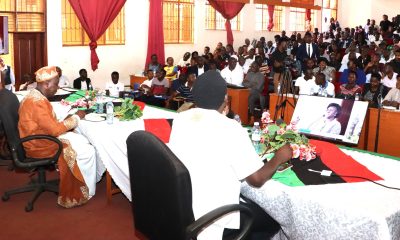
 Humanities & Social Sciences1 week ago
Humanities & Social Sciences1 week agoOver 2,000 Attend Makerere’s Dialogue on Traditional Spirituality, Herbal Medicine, Witchcraft and Questions of Truth
-
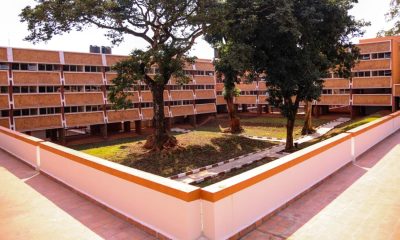
 General4 days ago
General4 days agoAccommodation during the Recess Term: 2024/2025
-
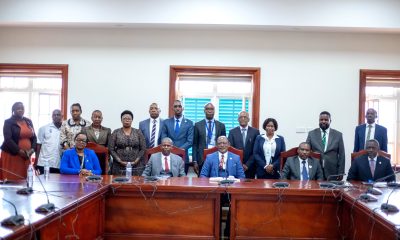
 General2 weeks ago
General2 weeks agoARIPO, URSB Visit Mak, Discuss IP & Patenting
-

 General2 weeks ago
General2 weeks agoPhase 1 of e-Learning initiative at Makerere University registers remarkable achievements
